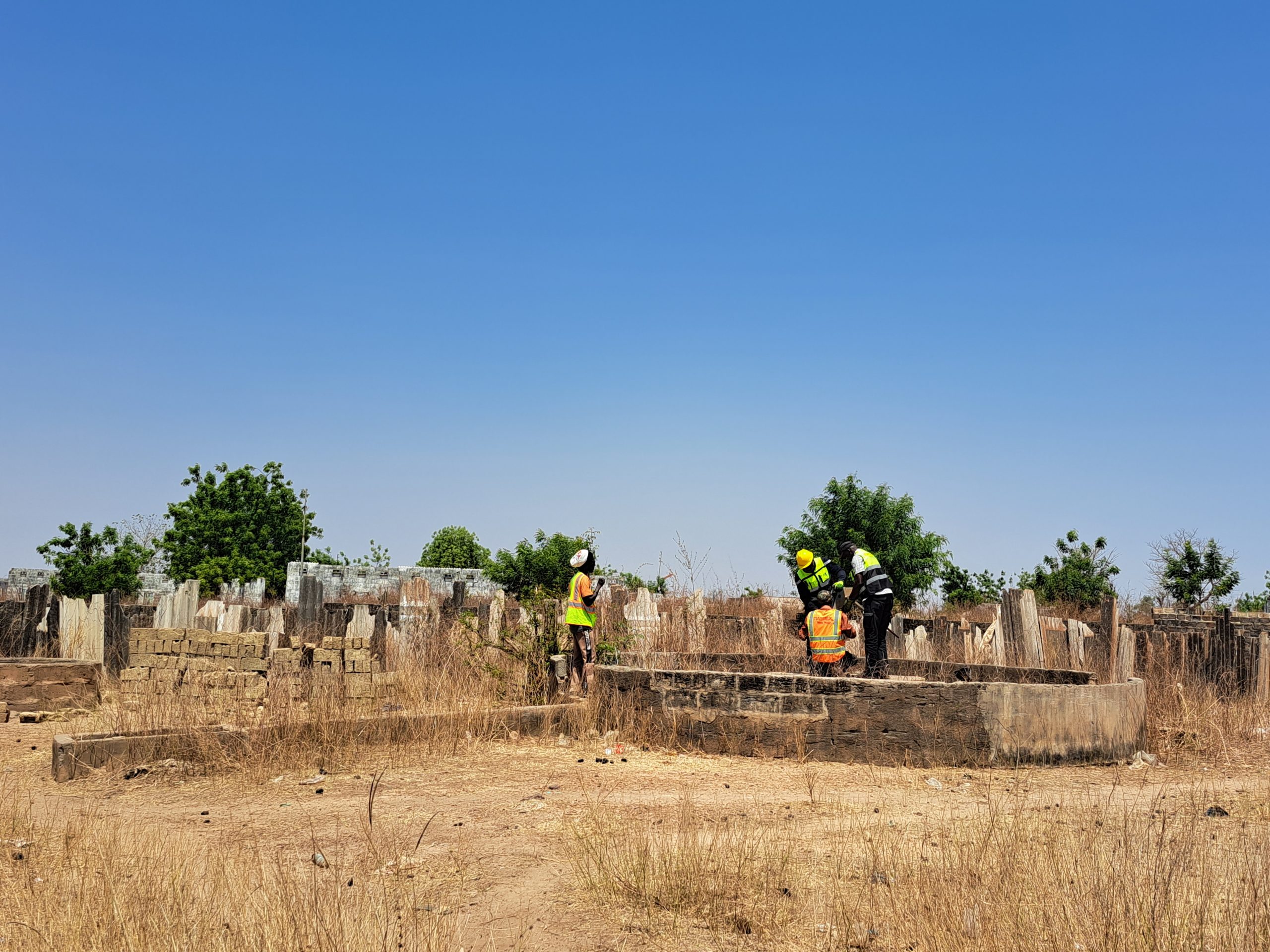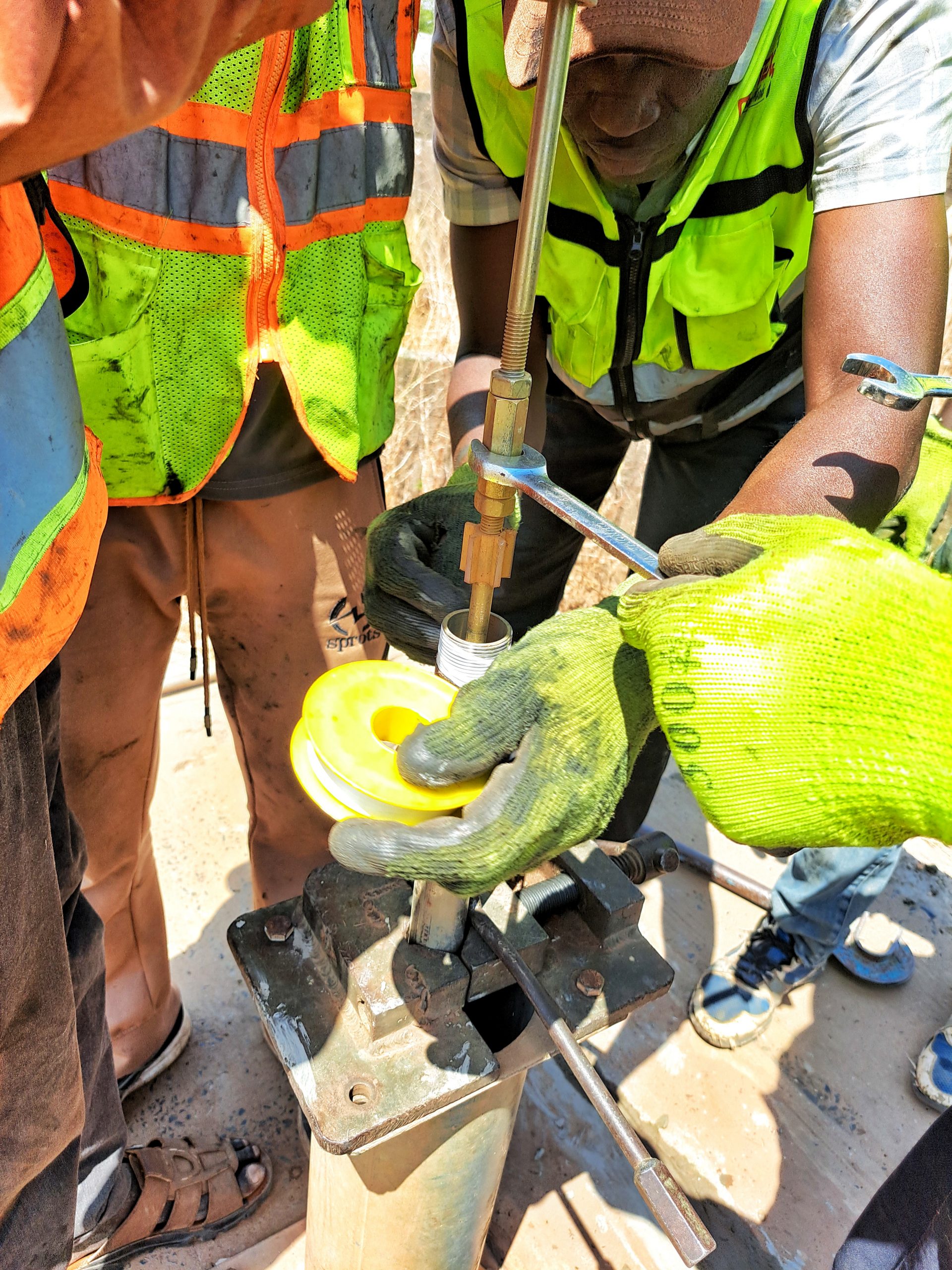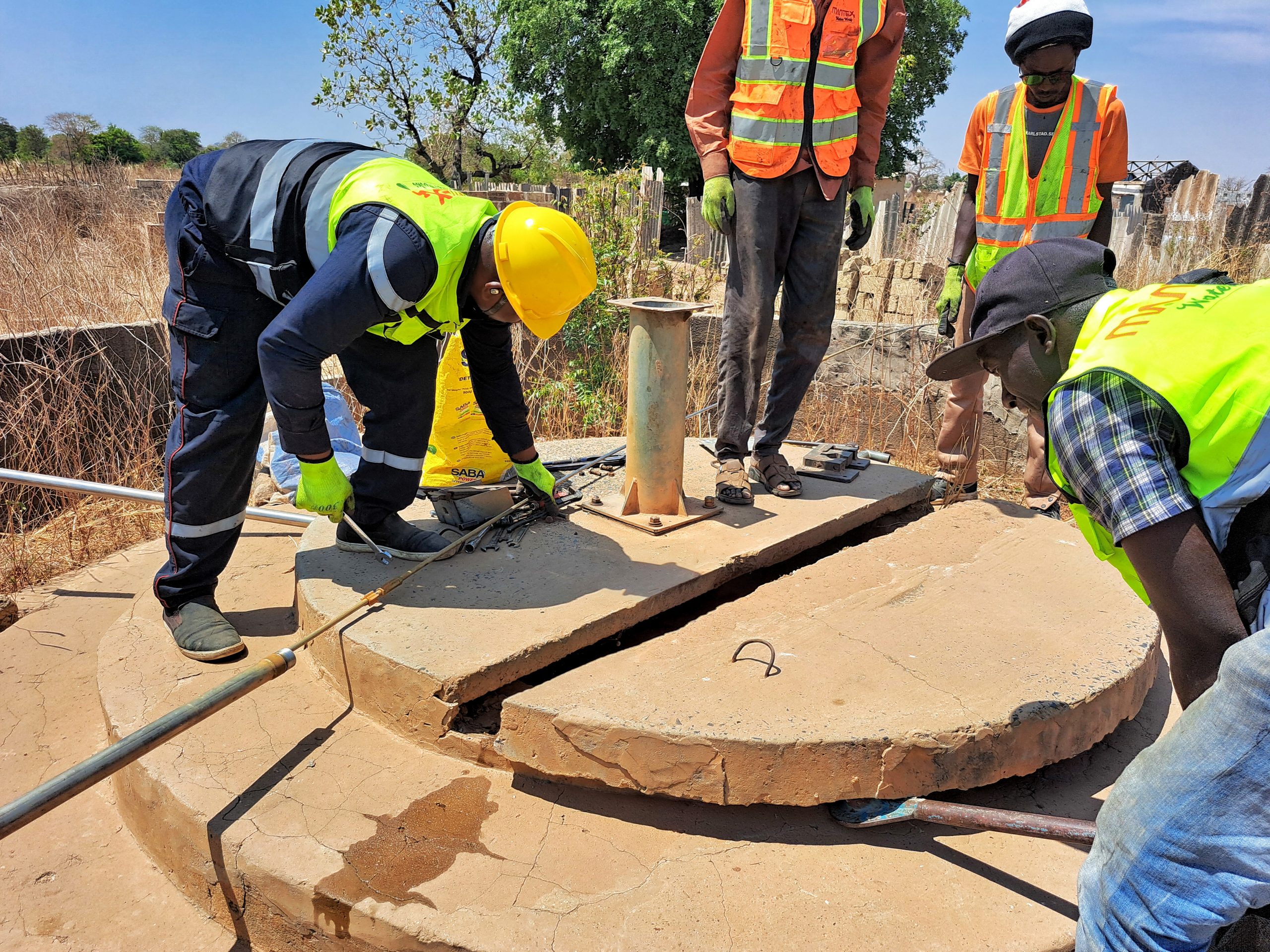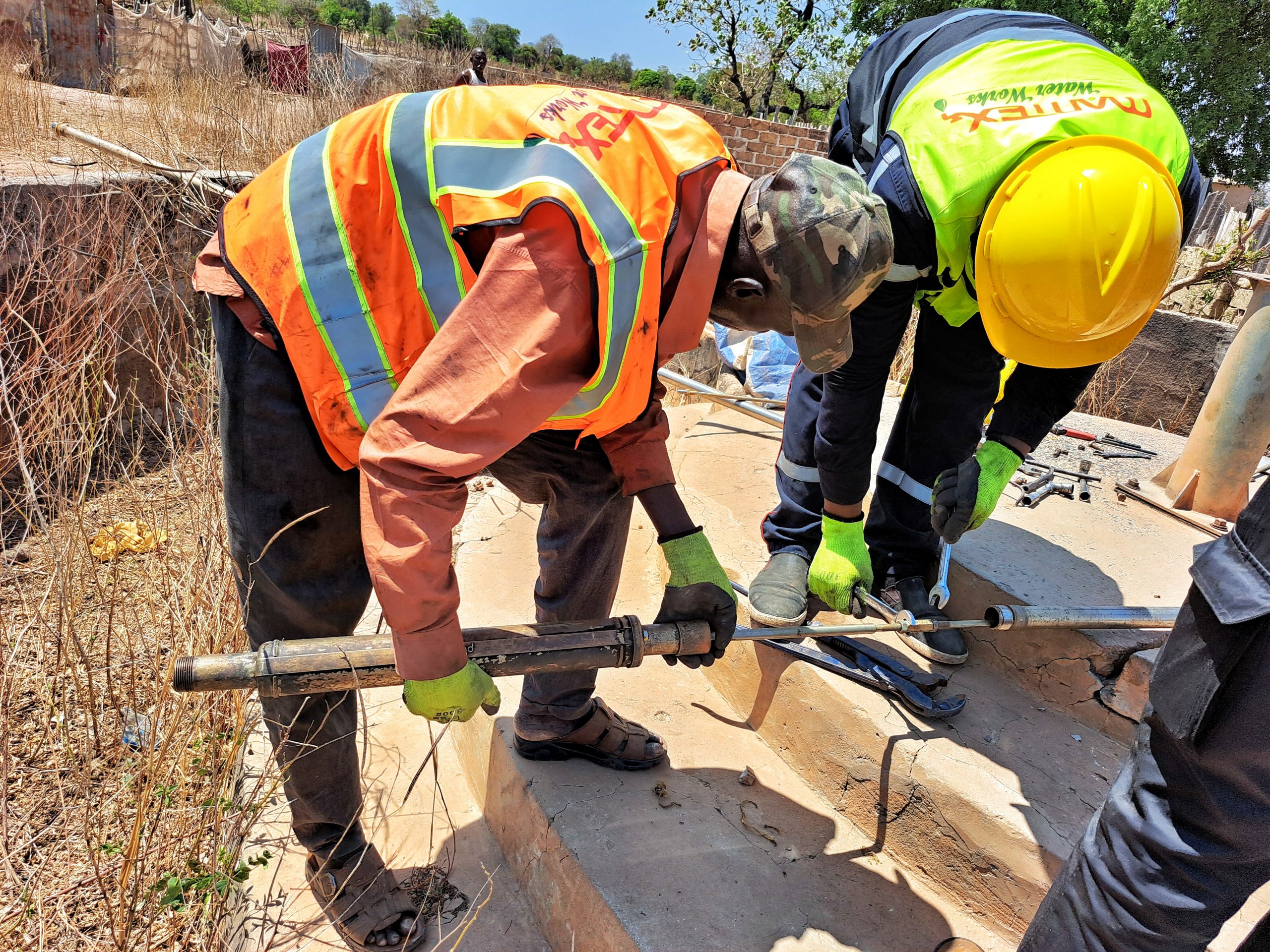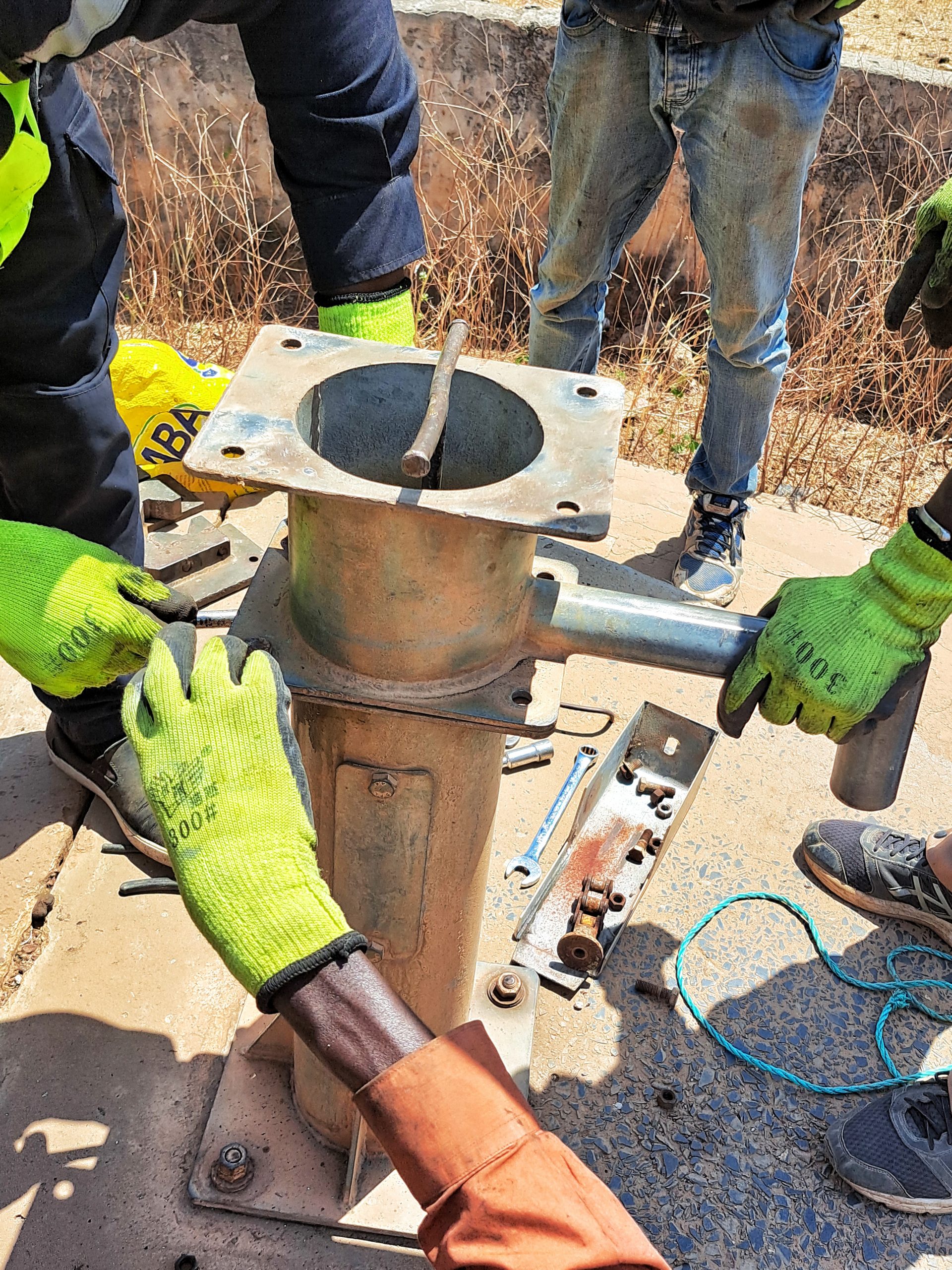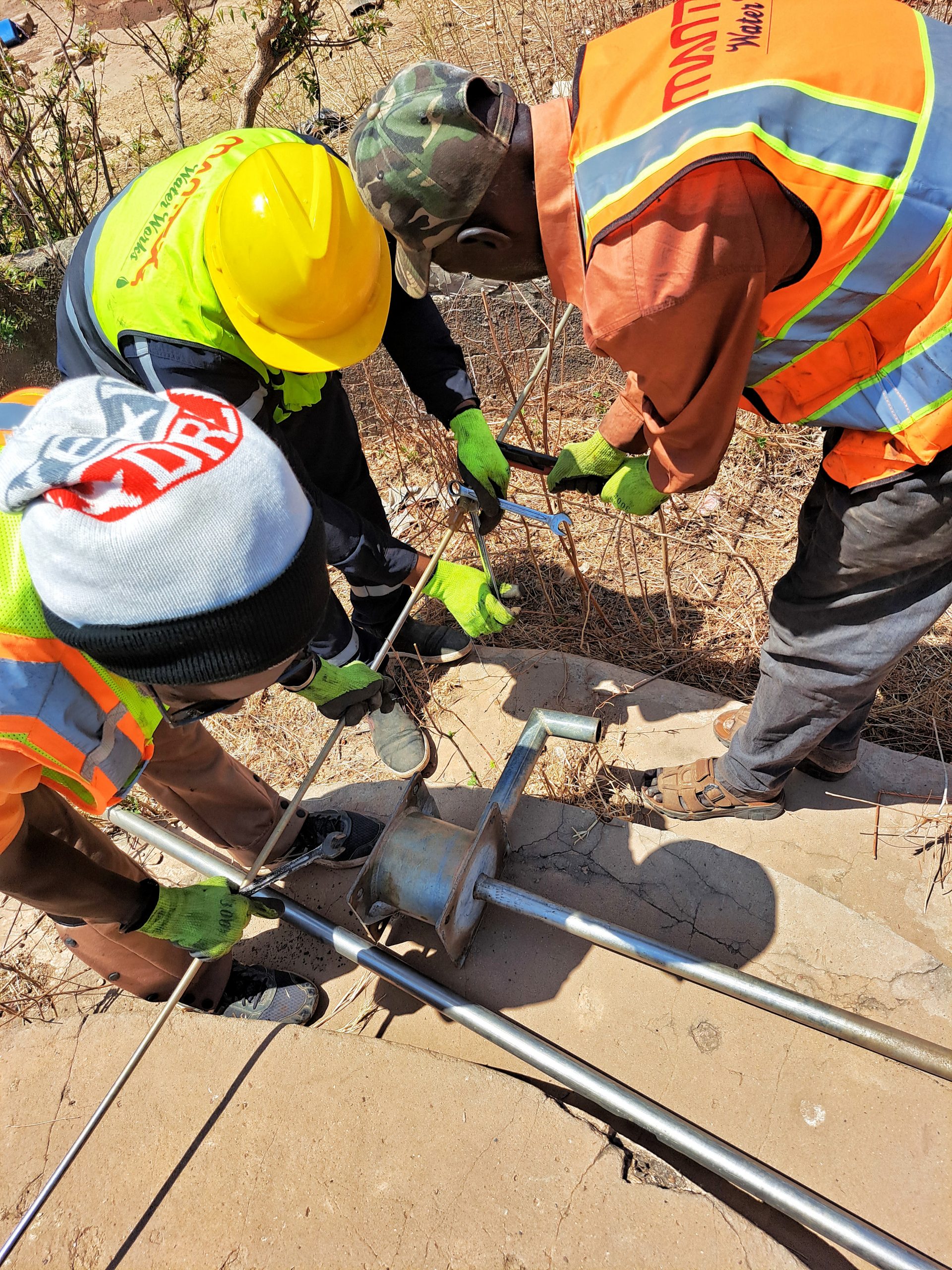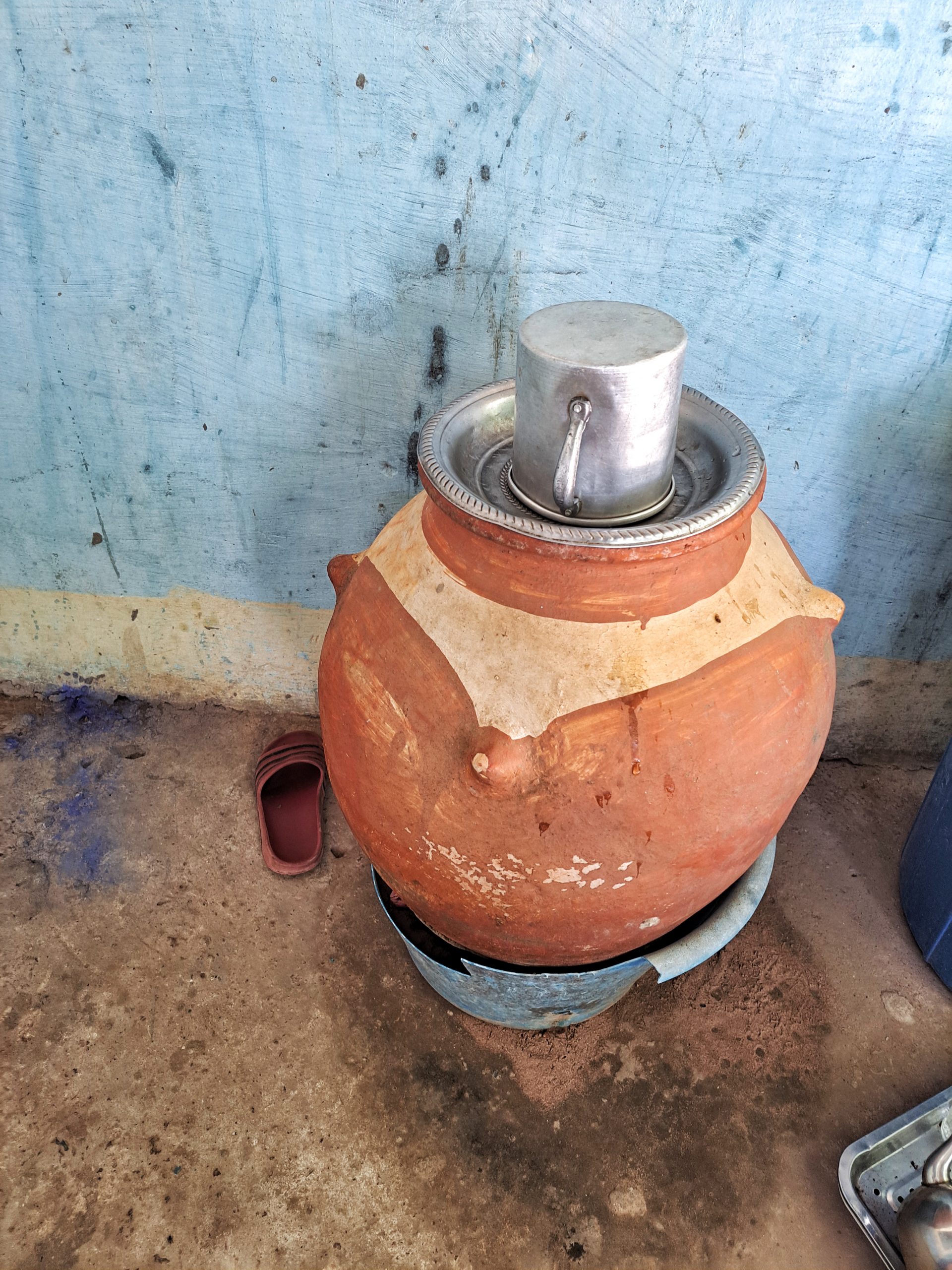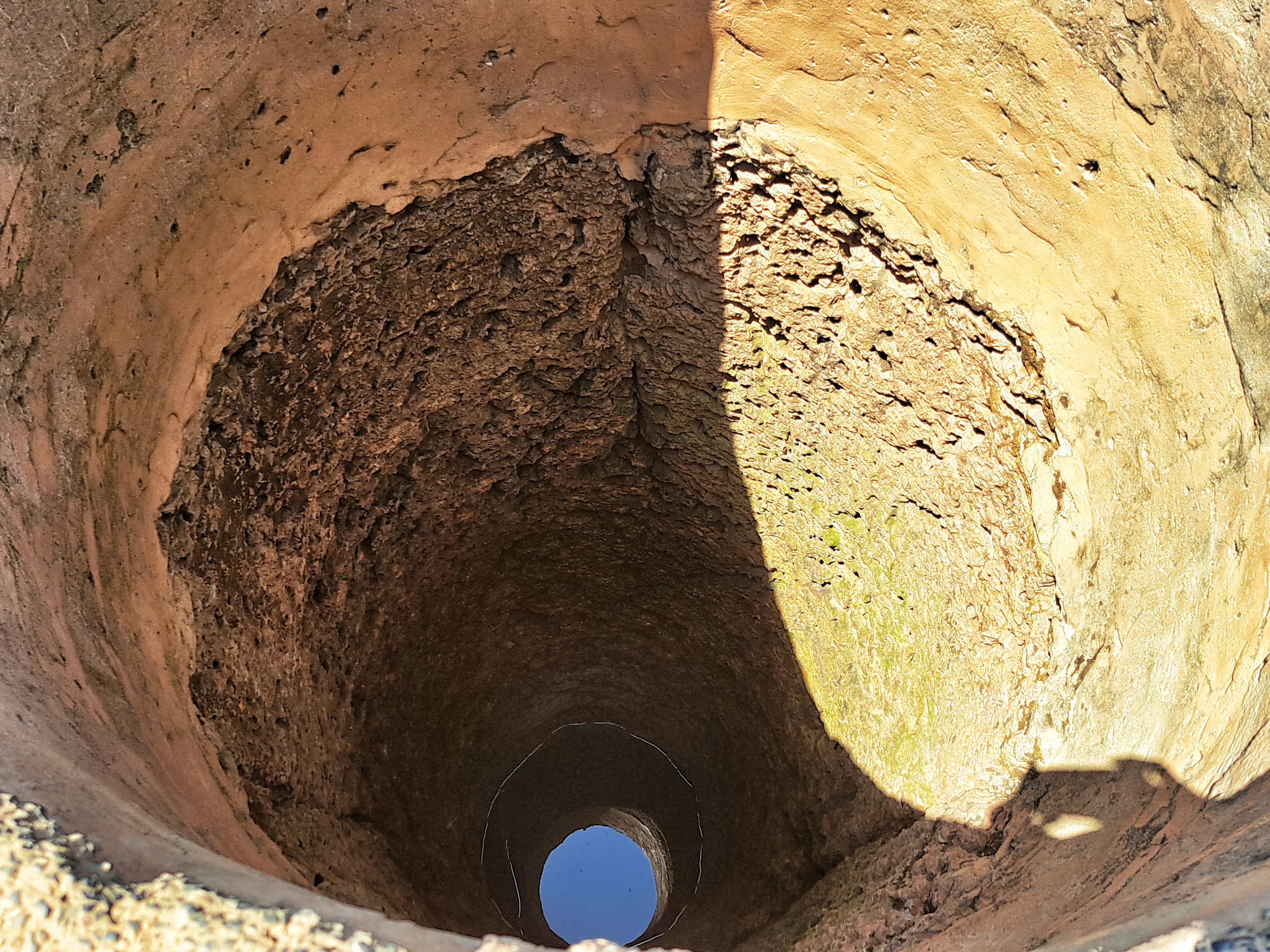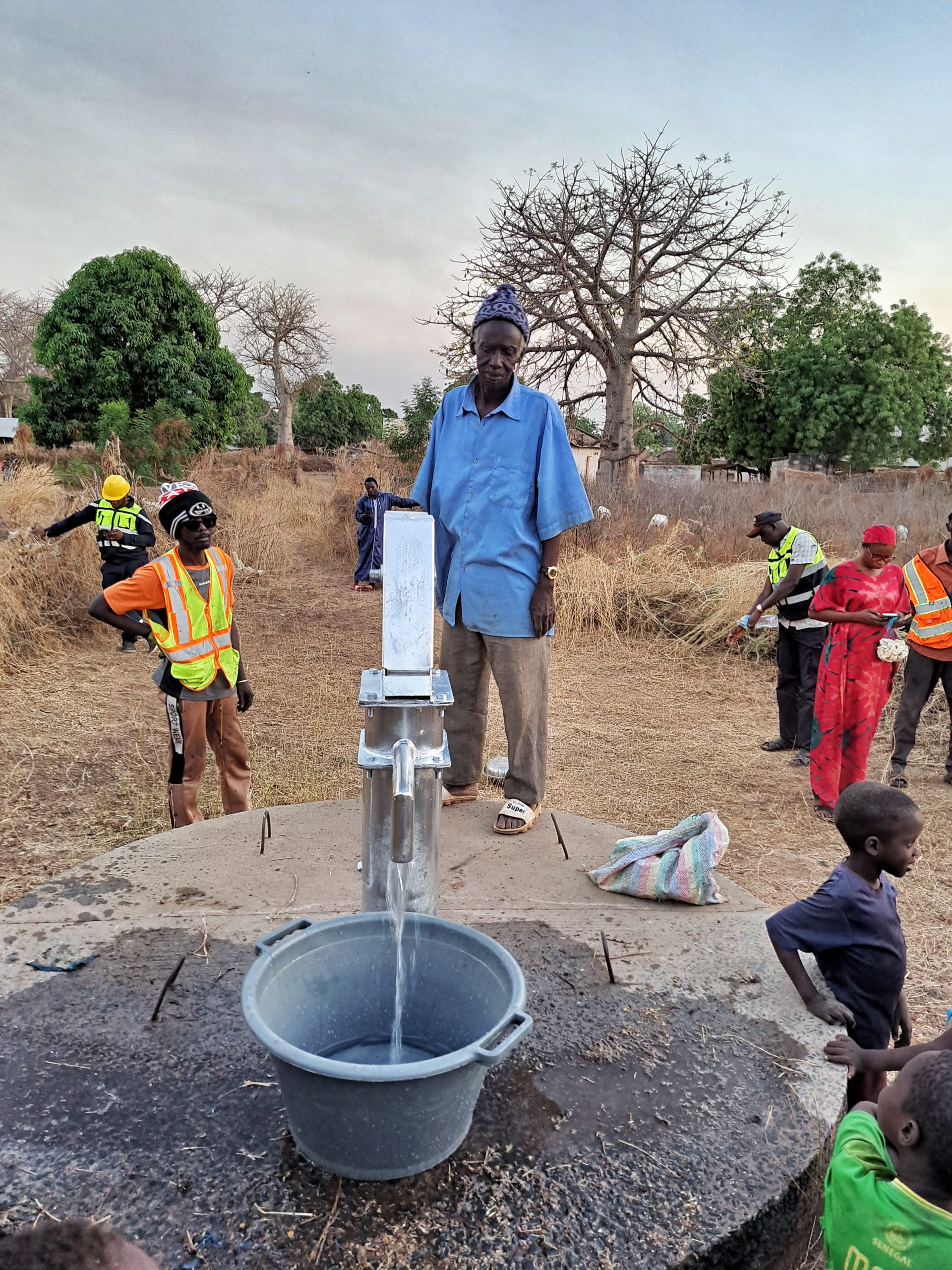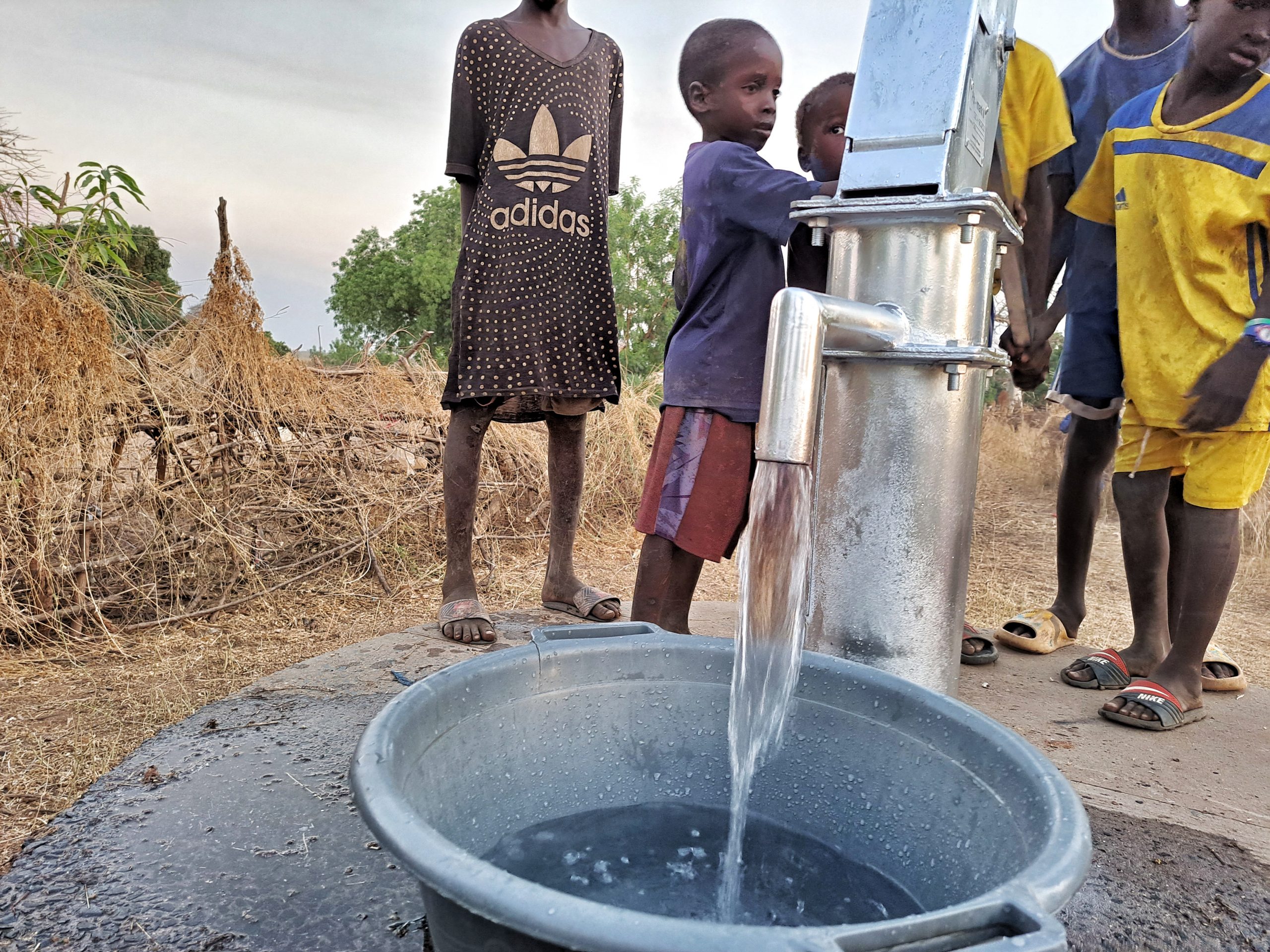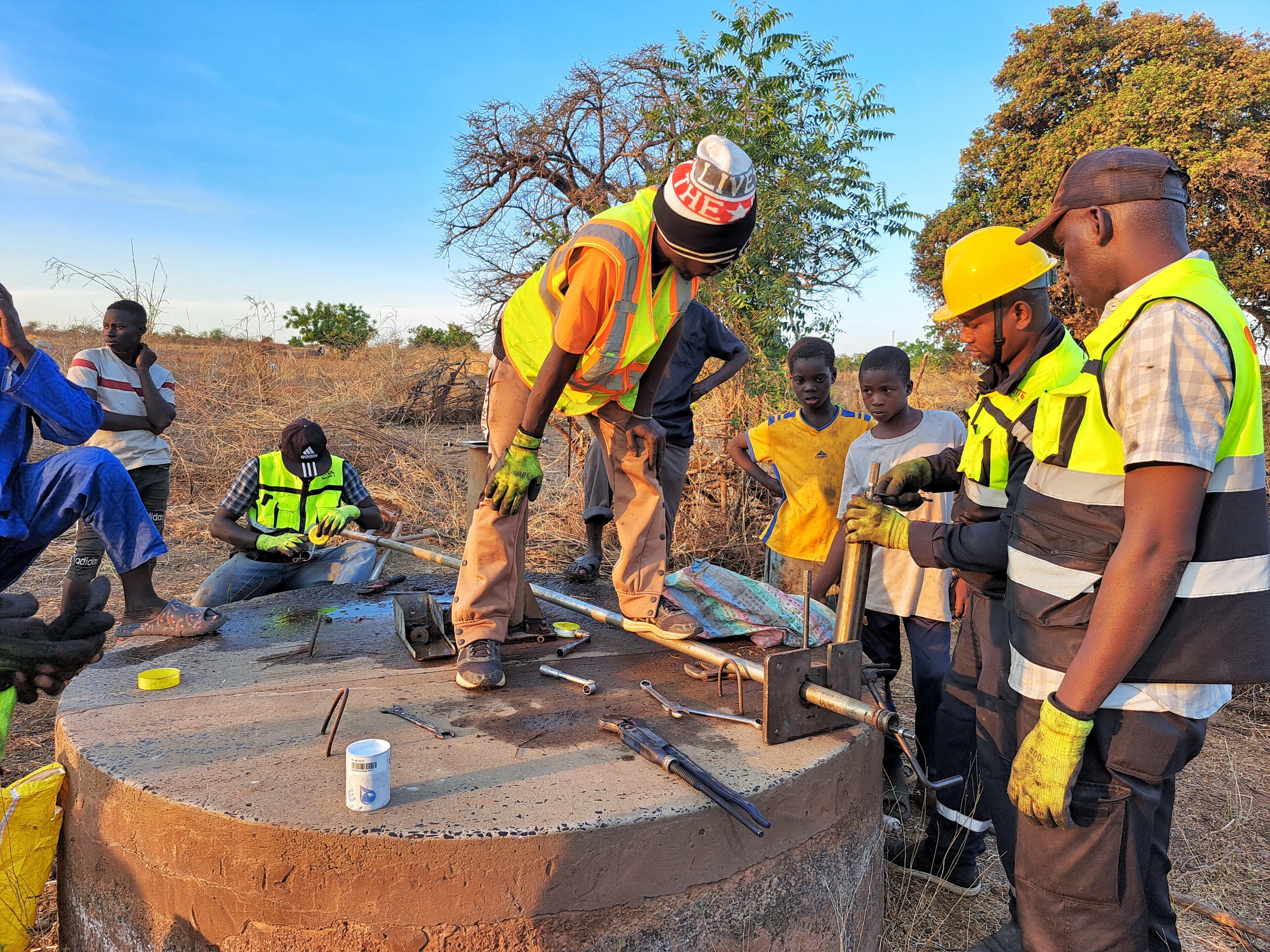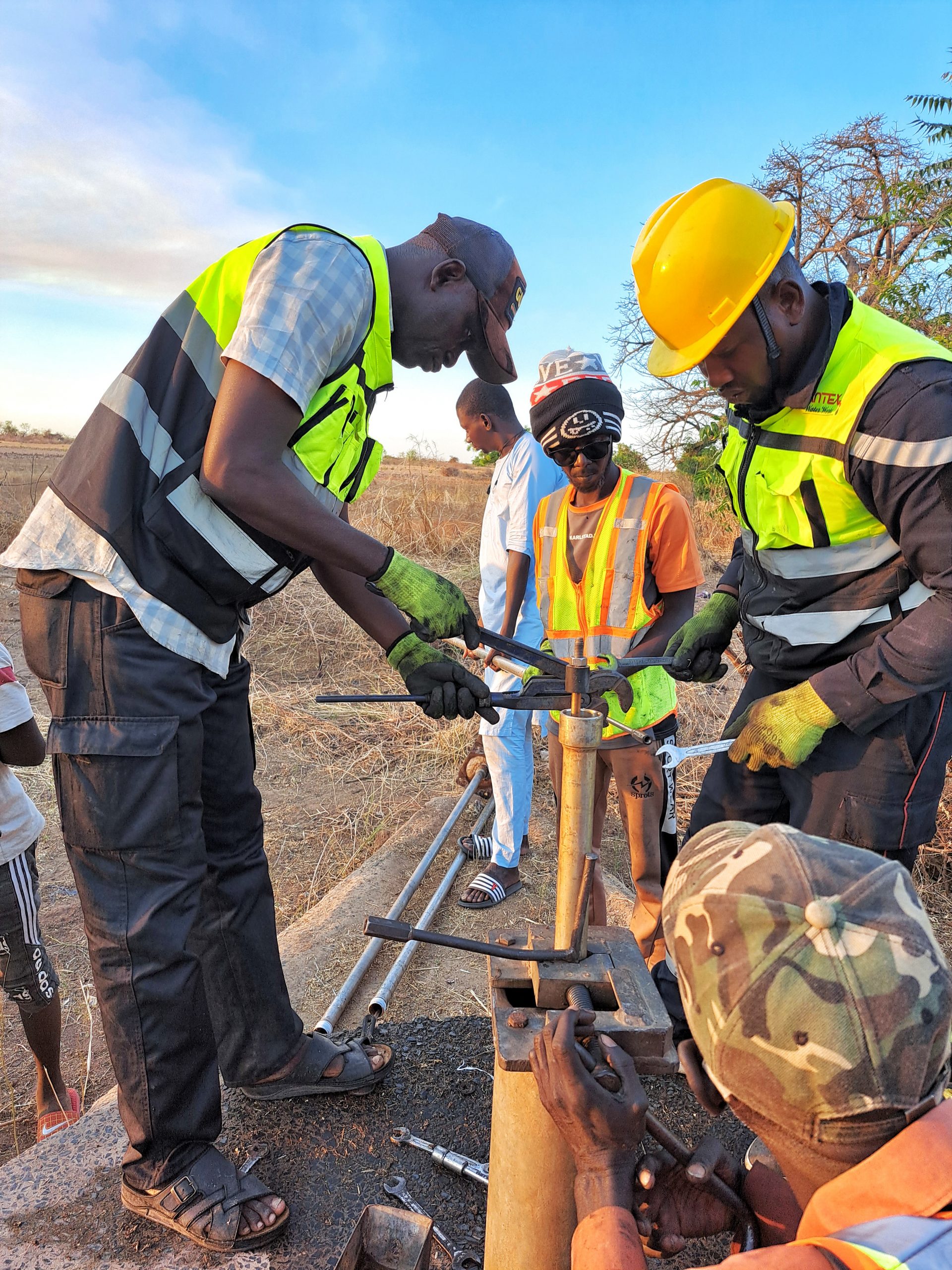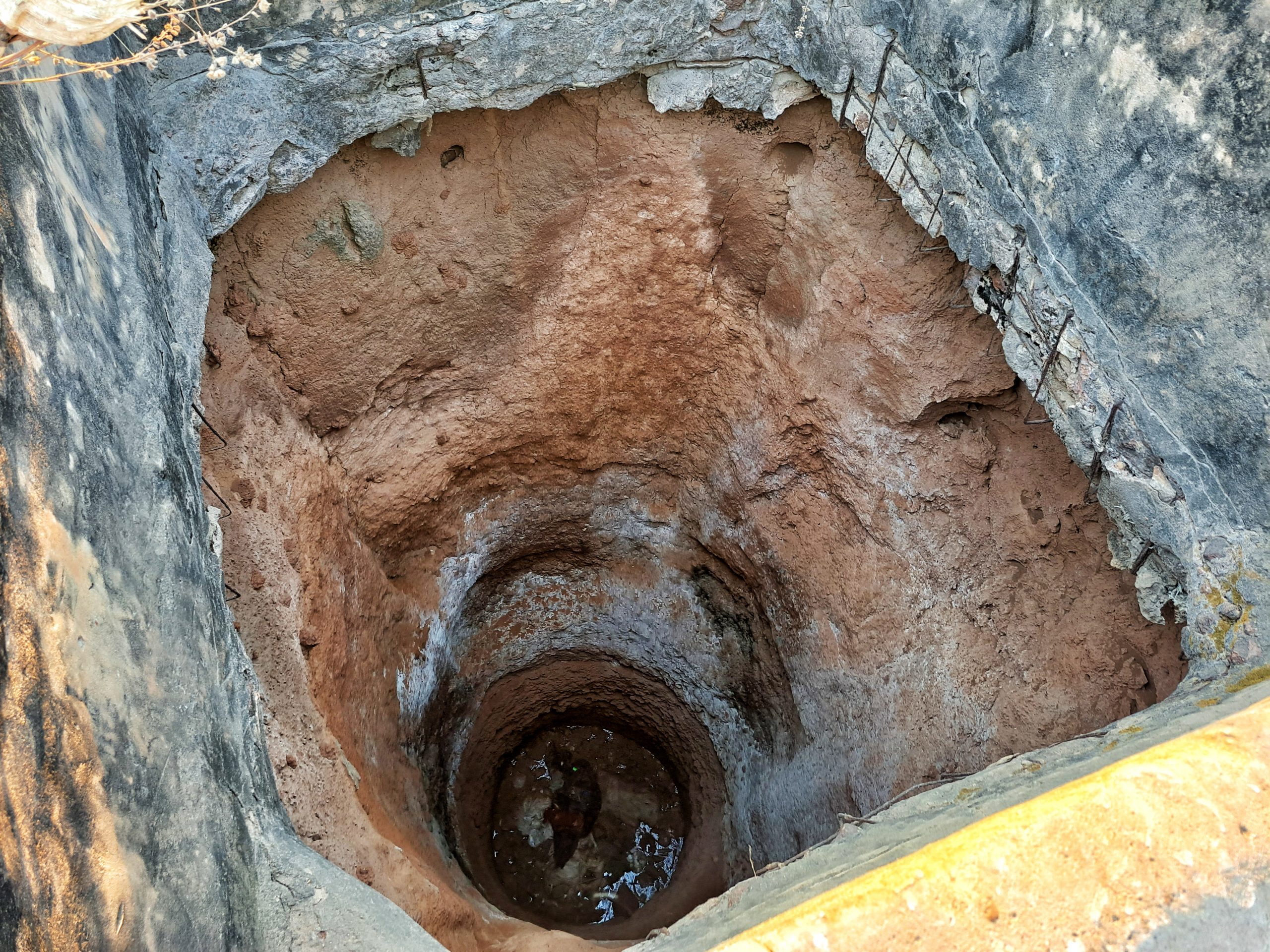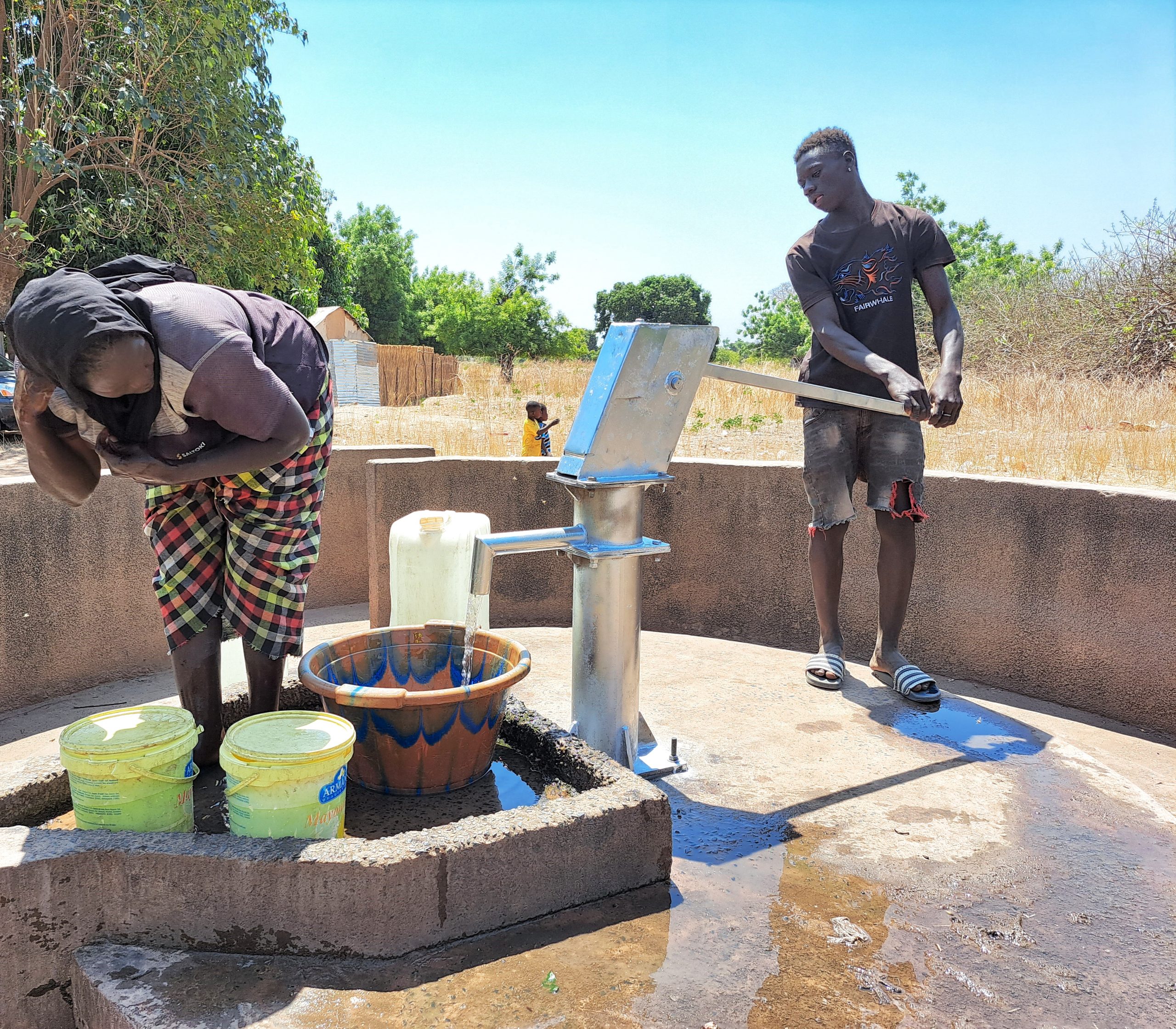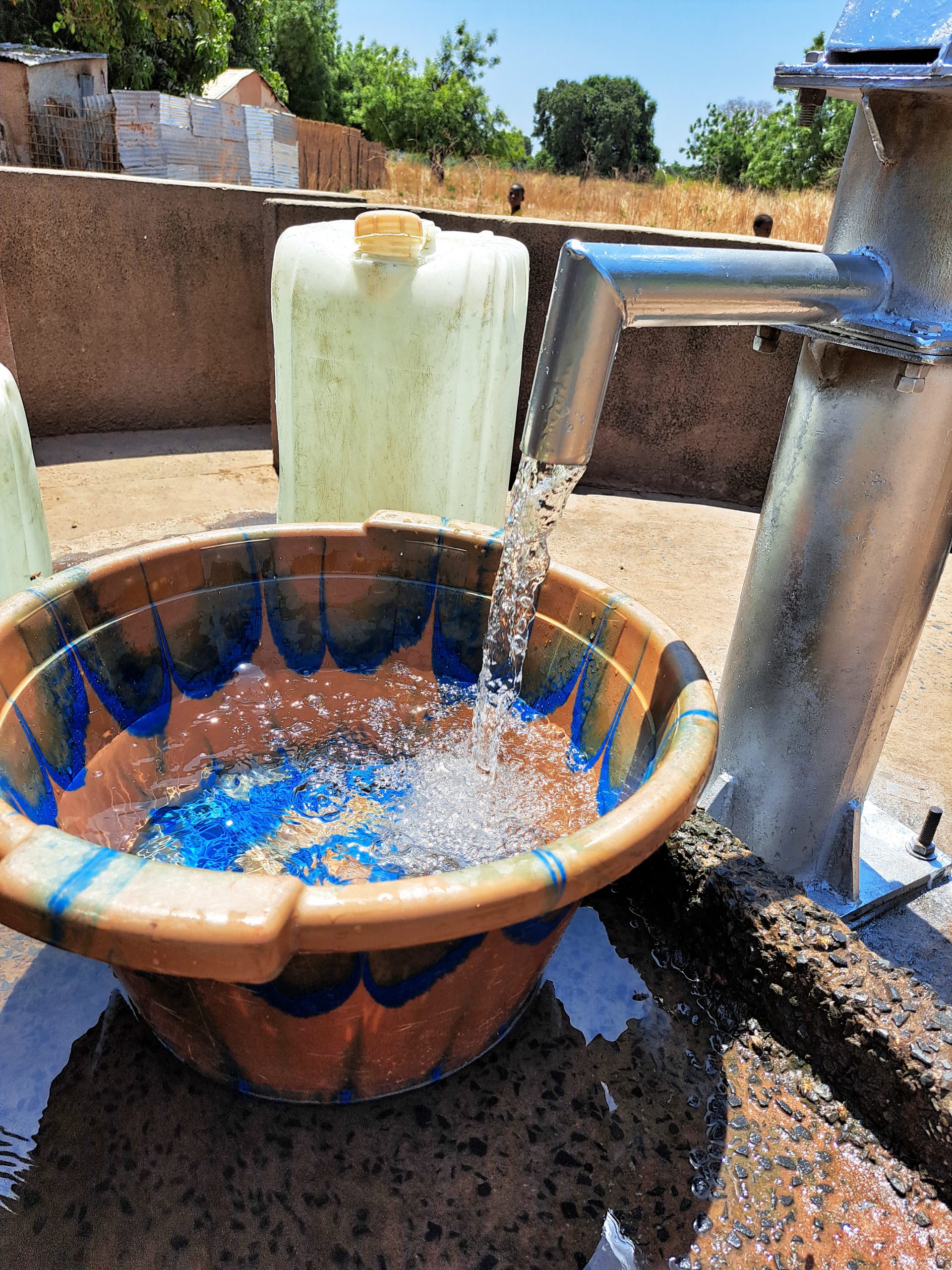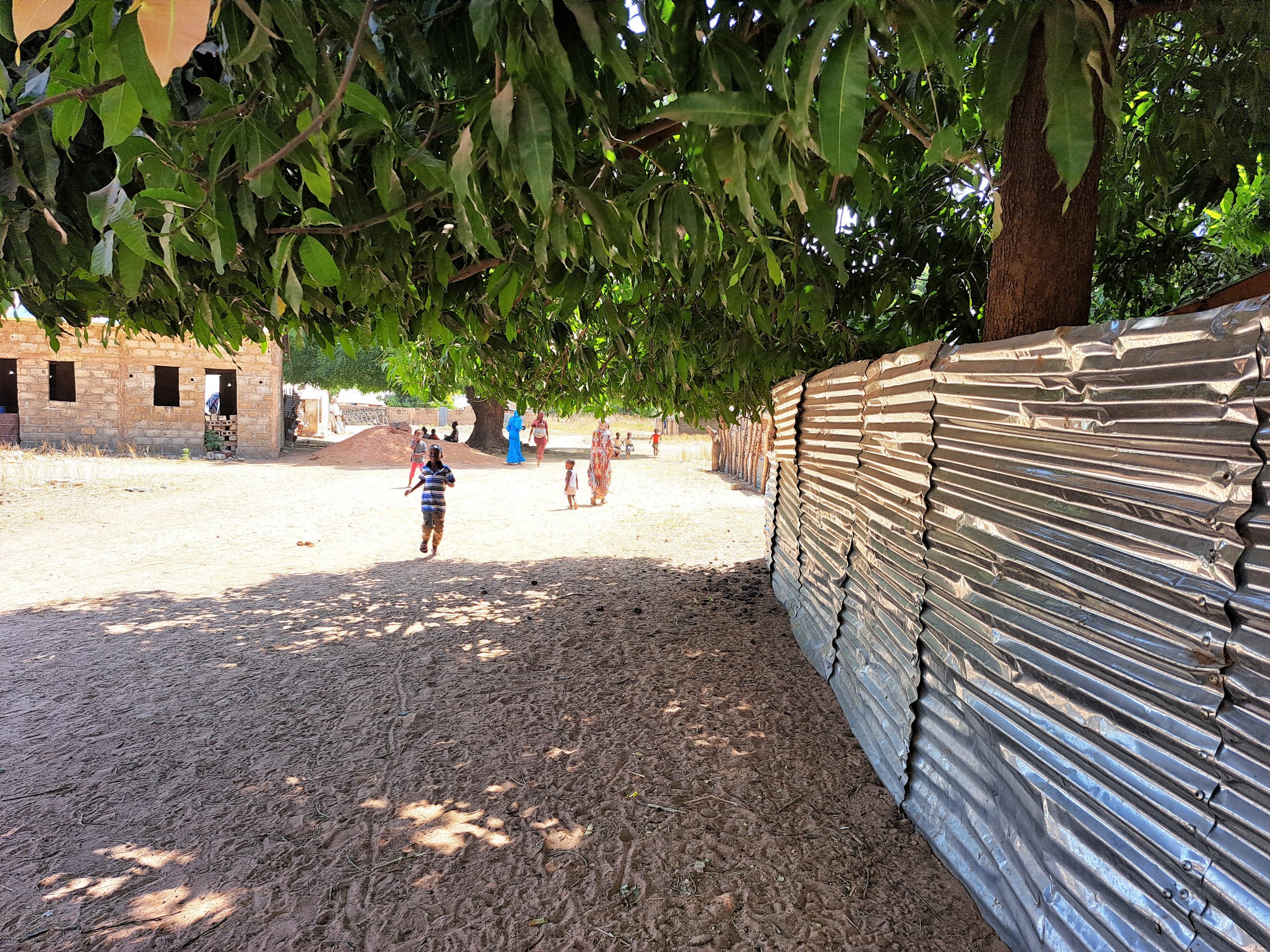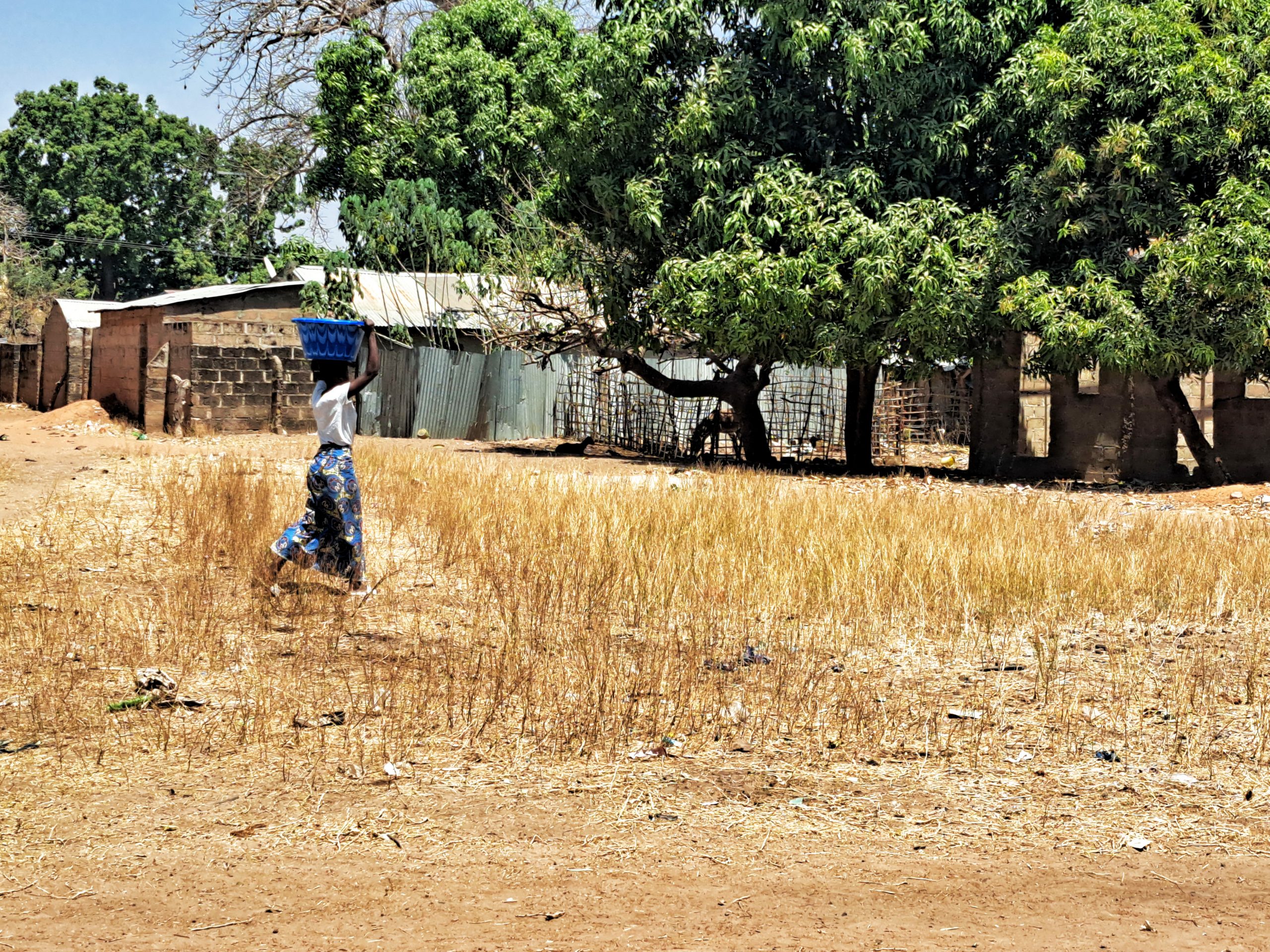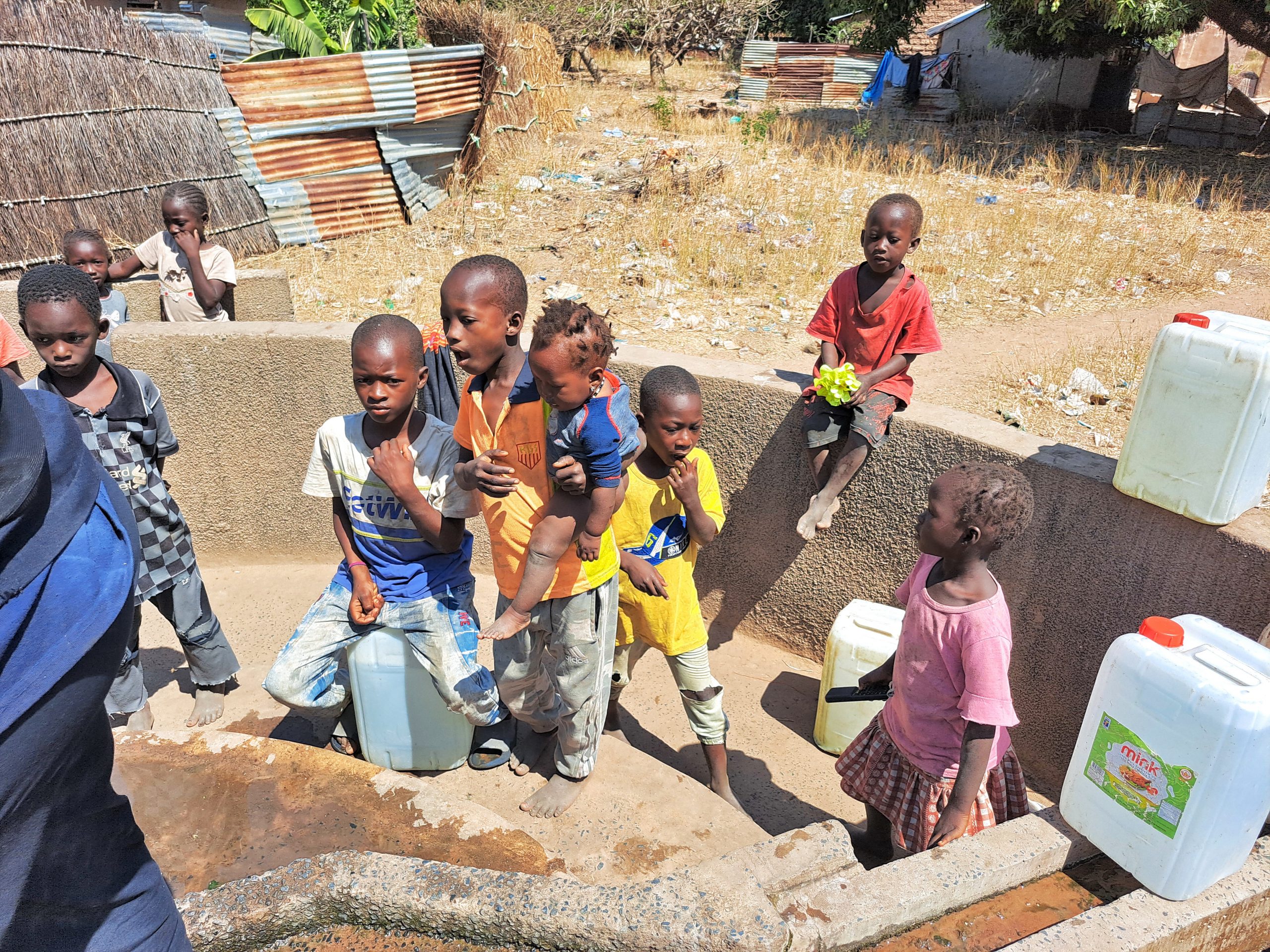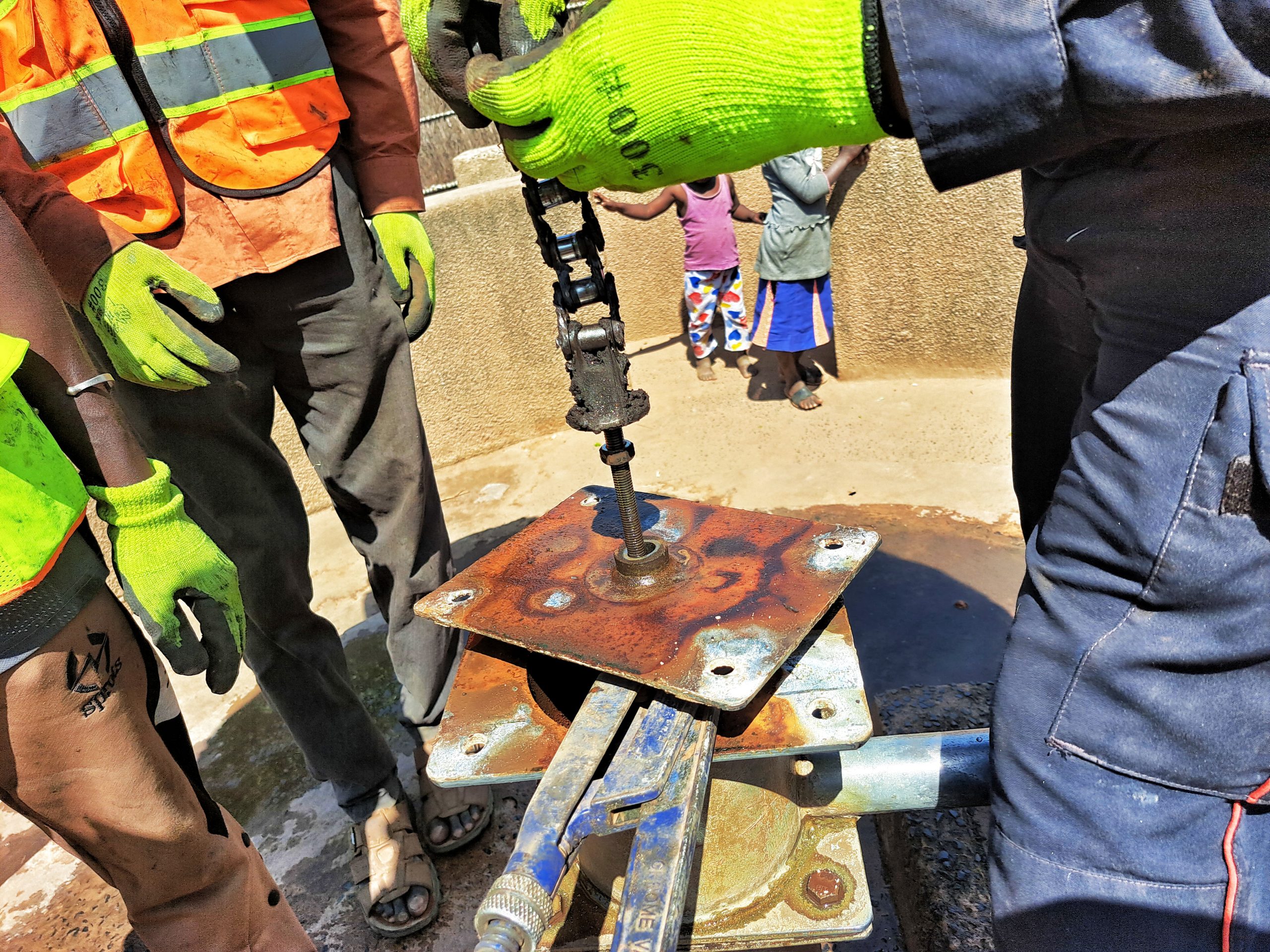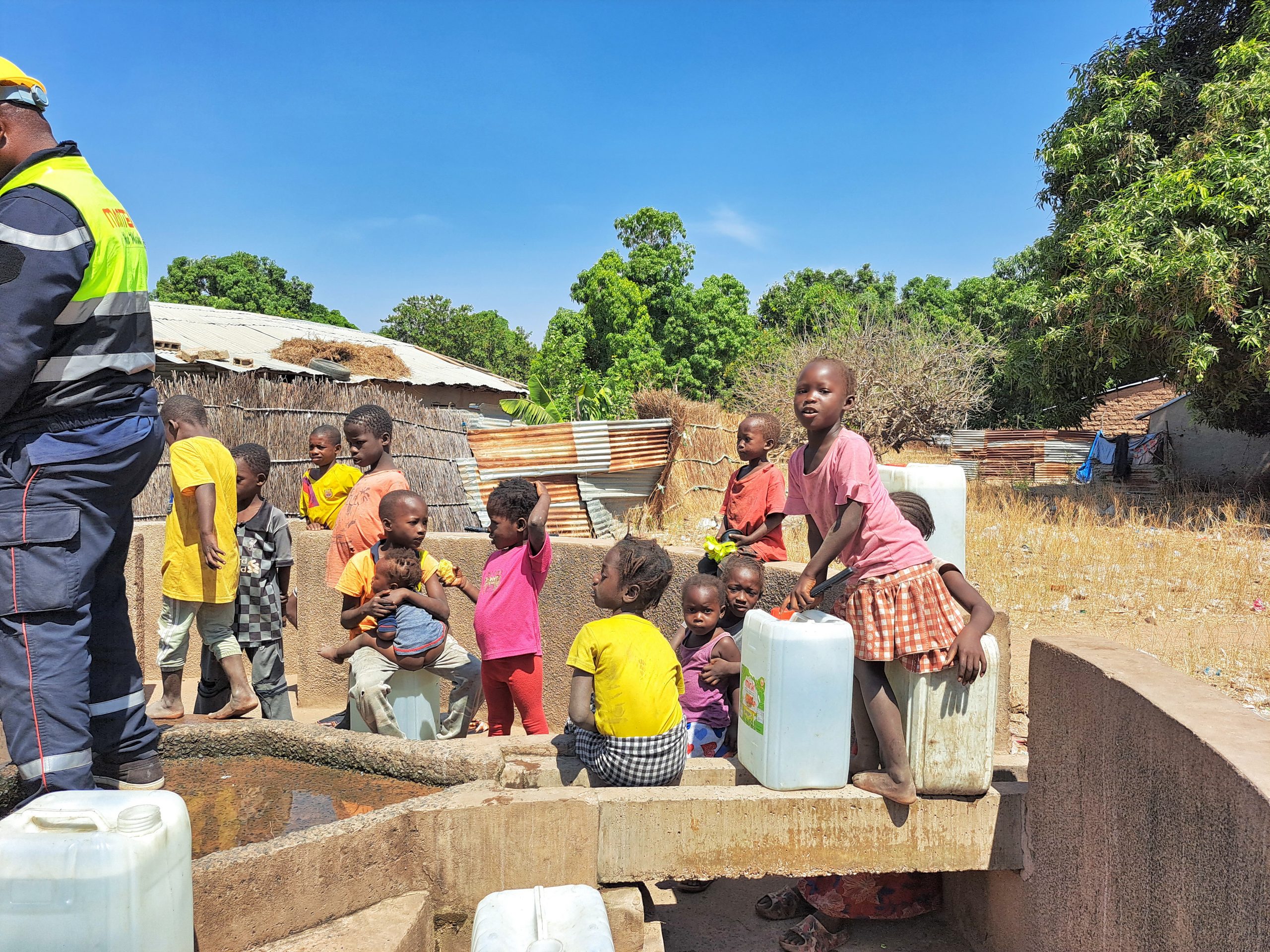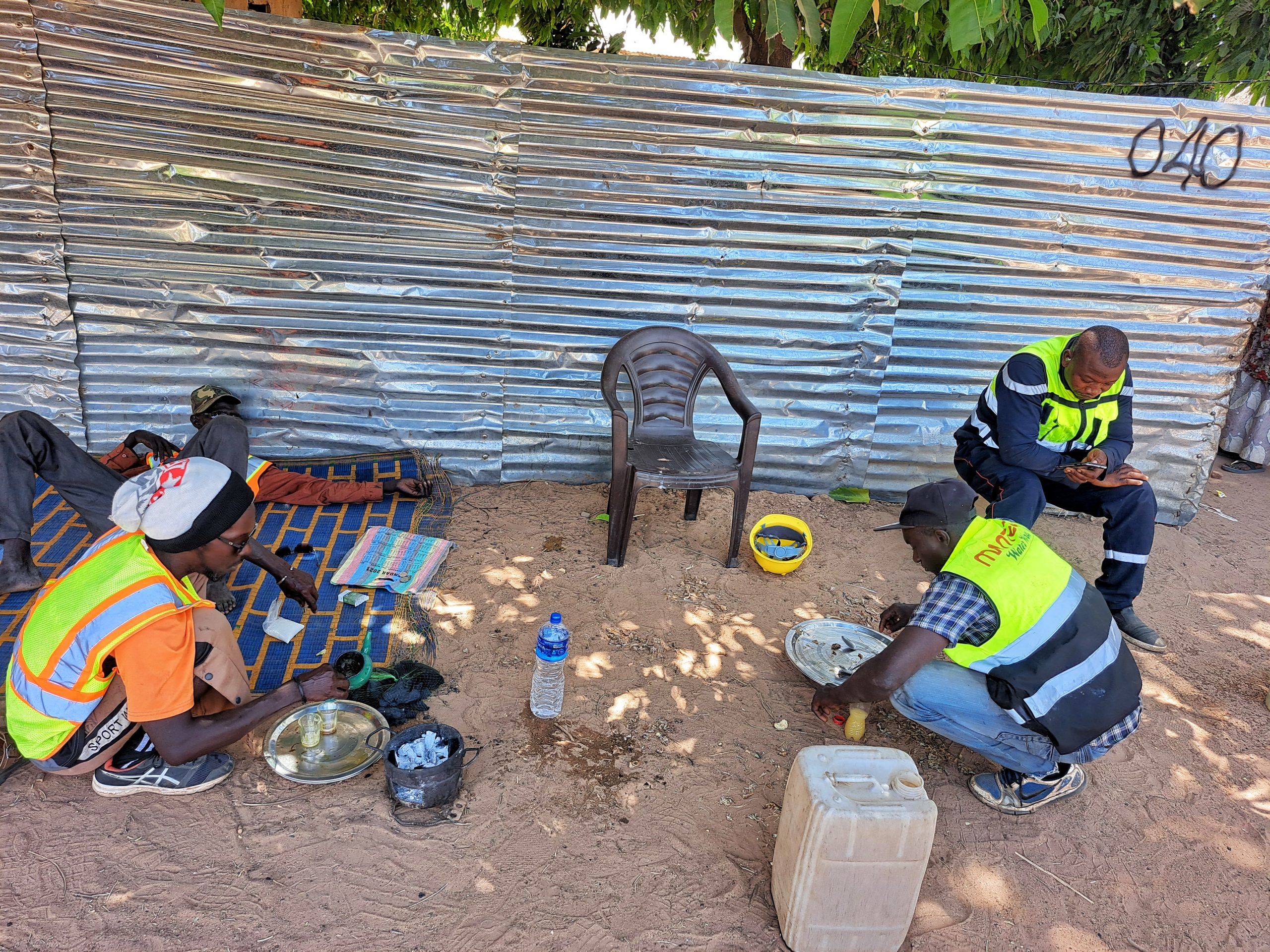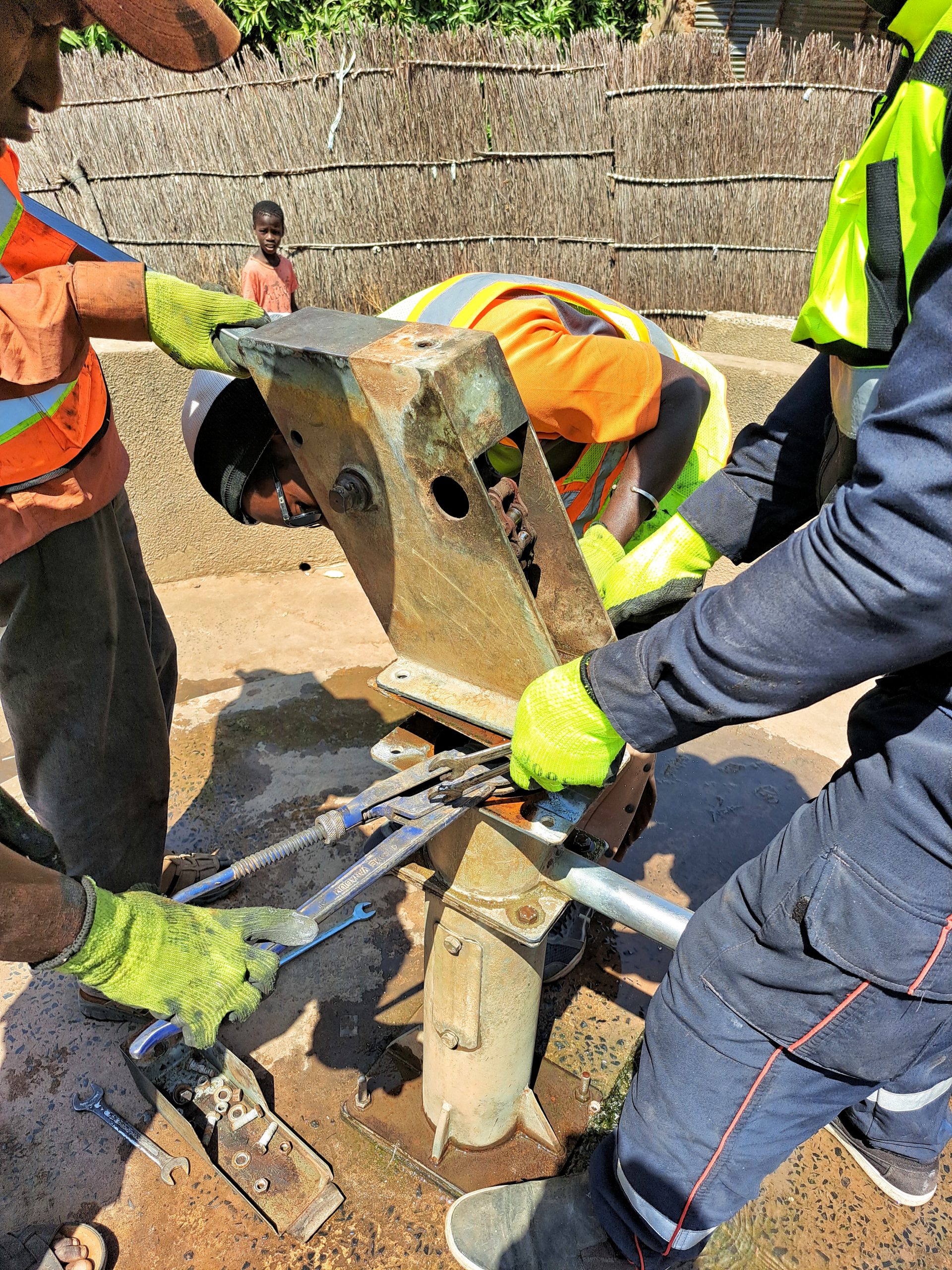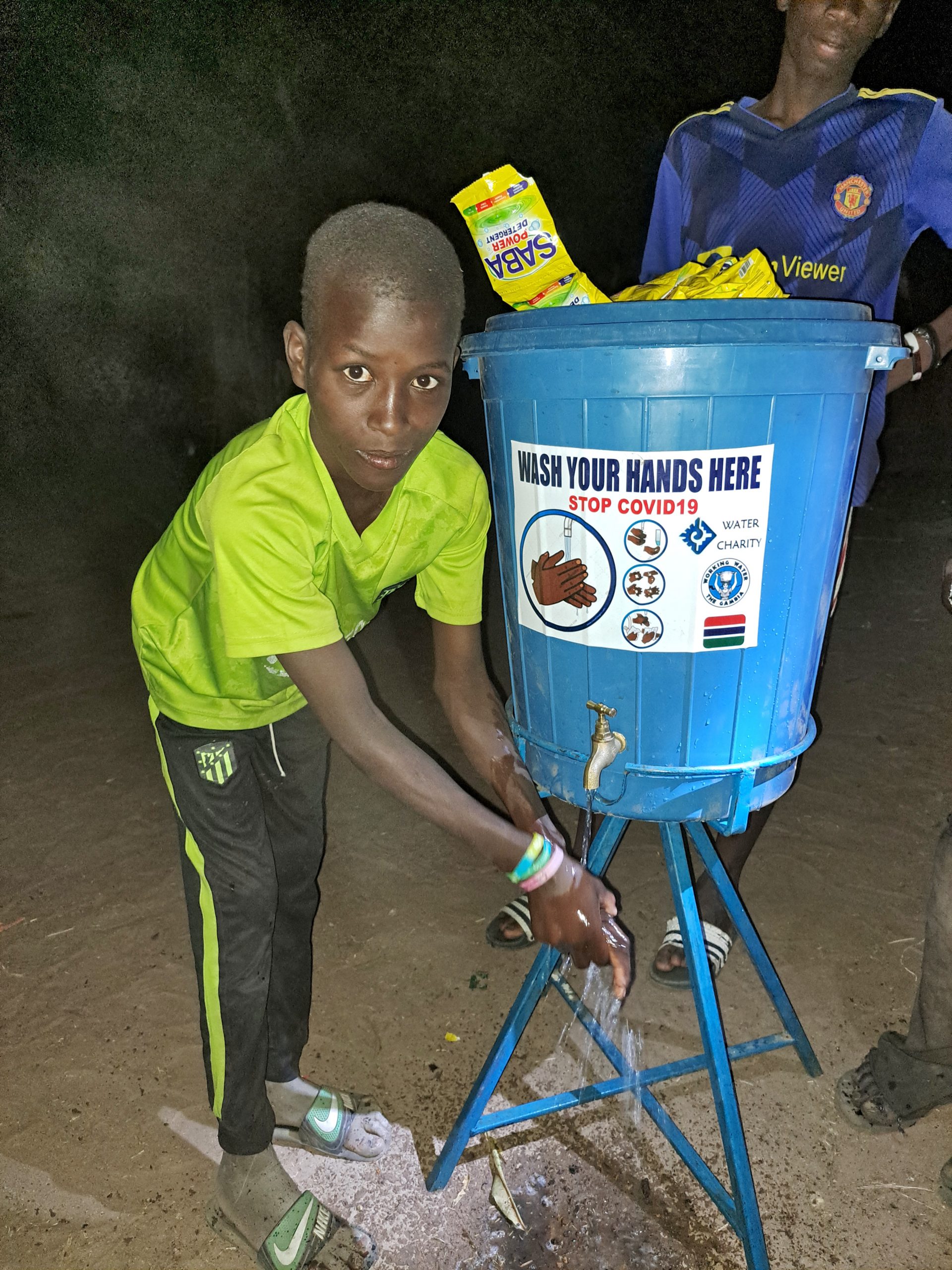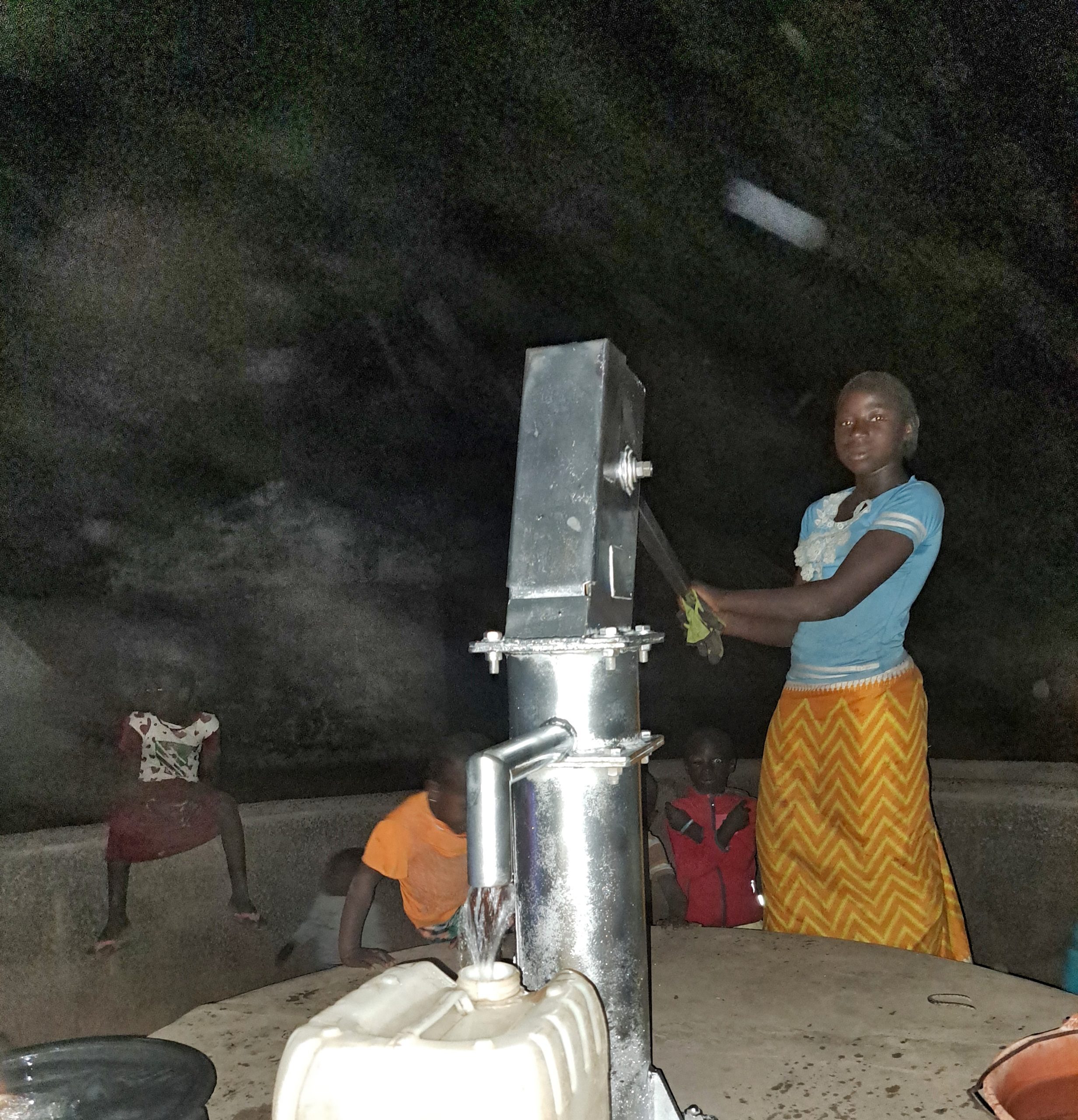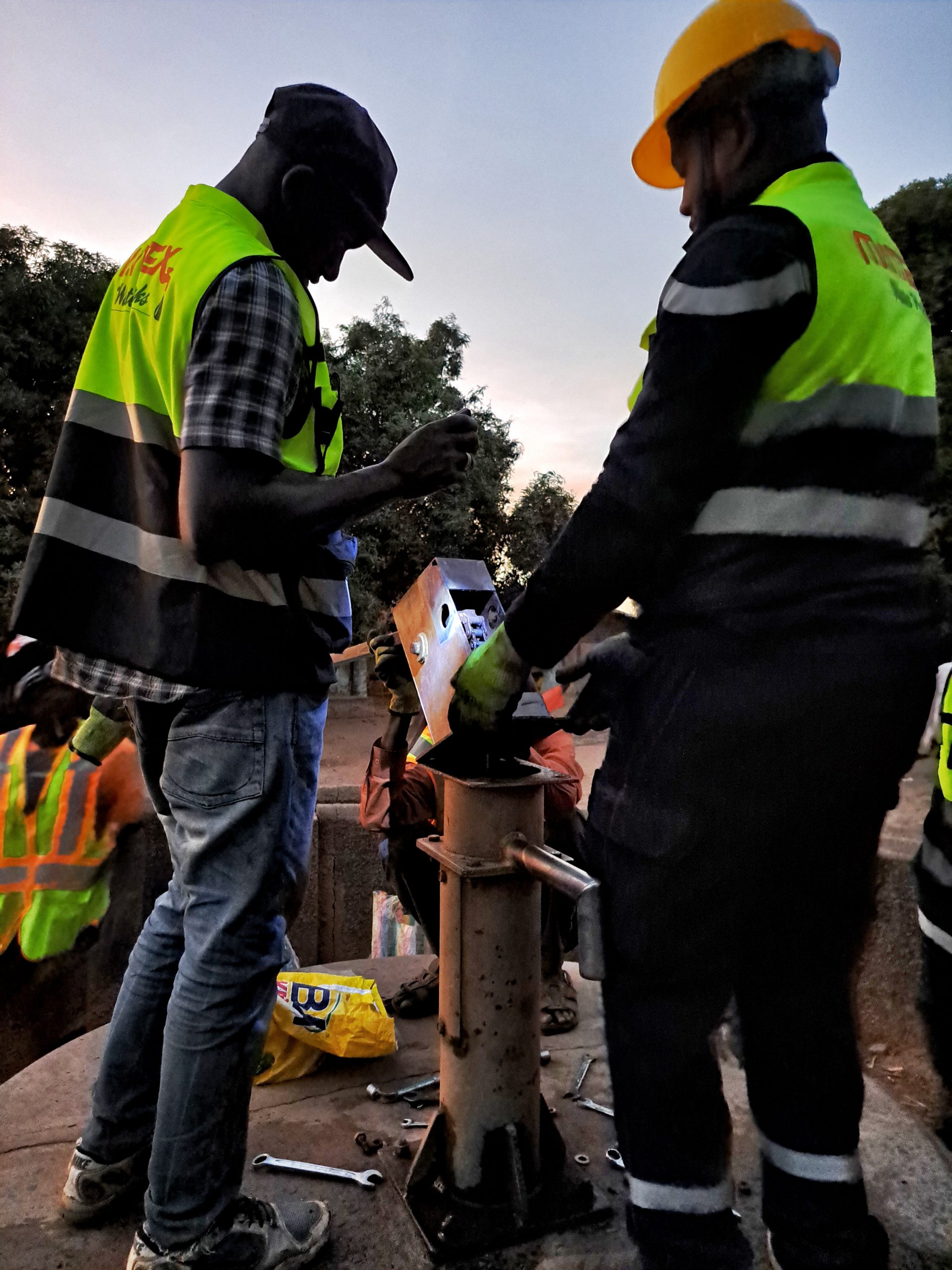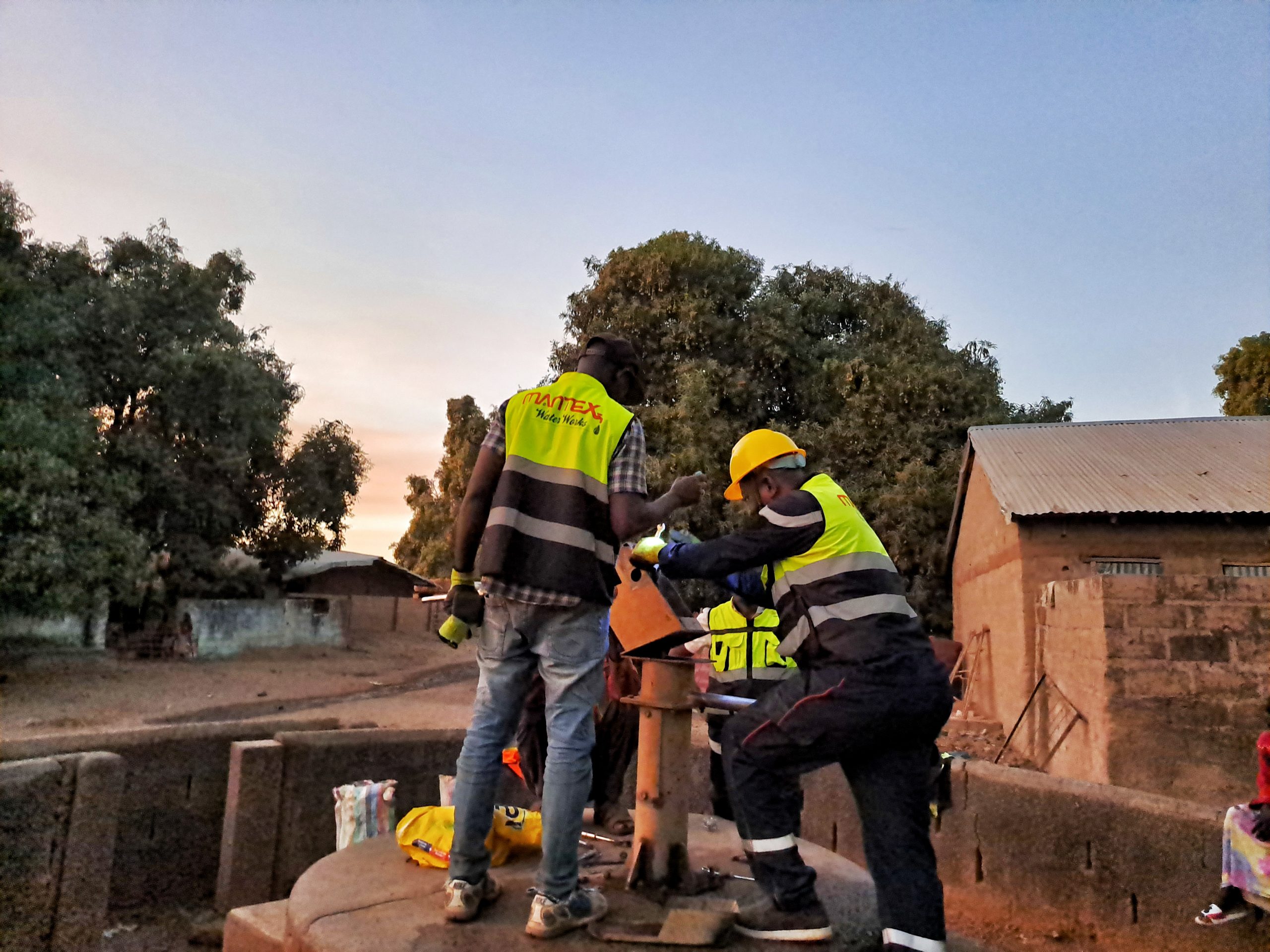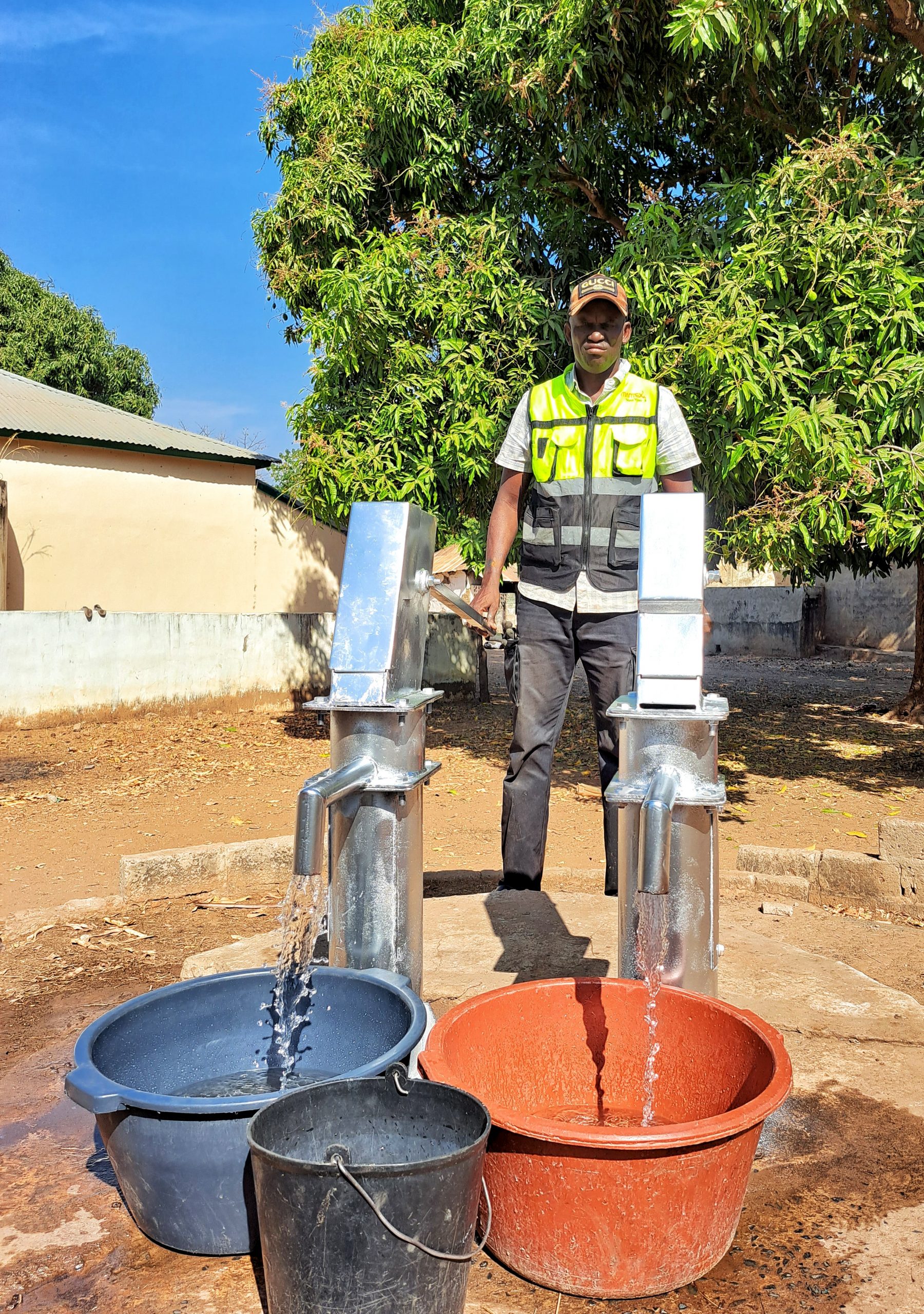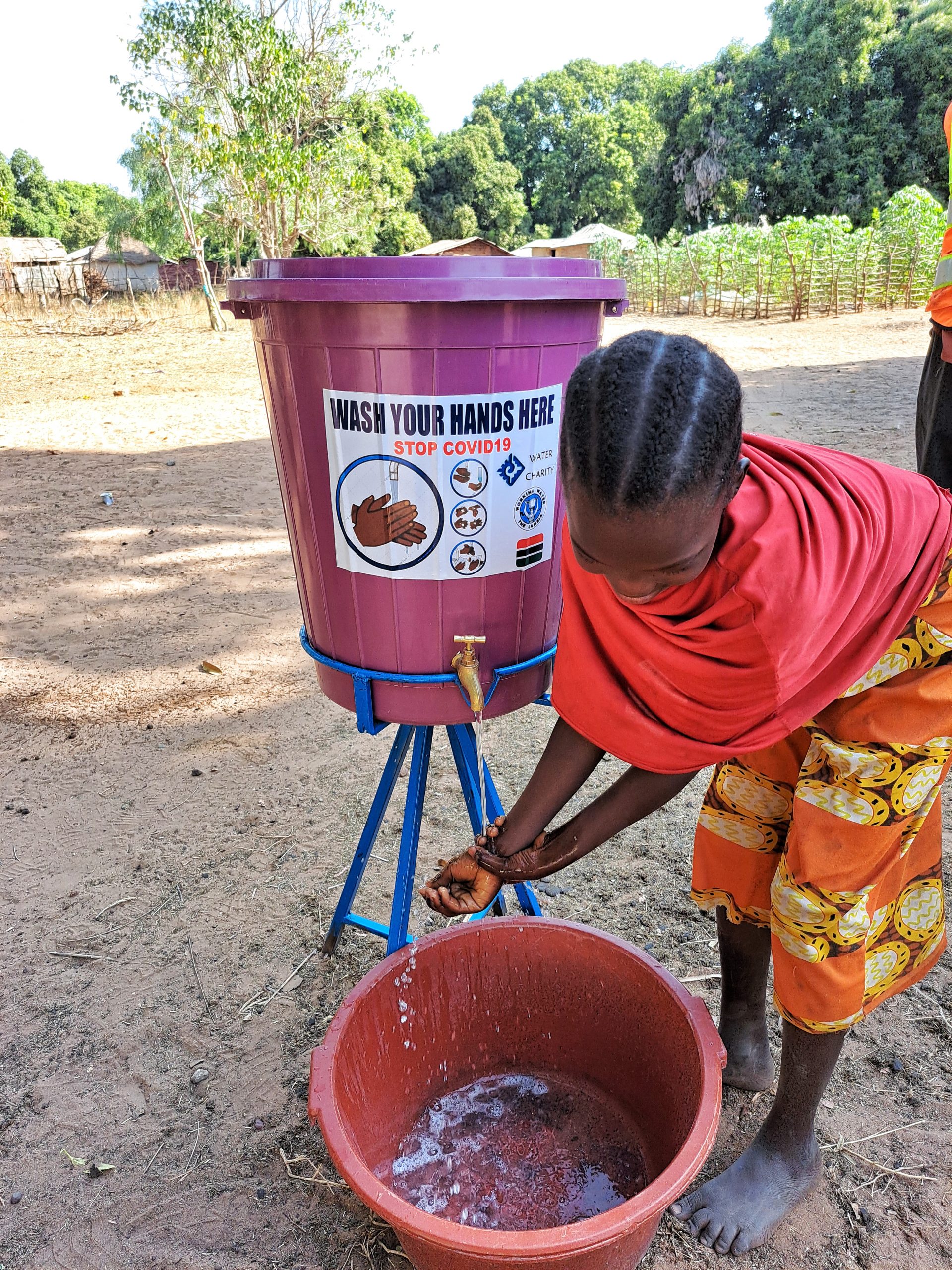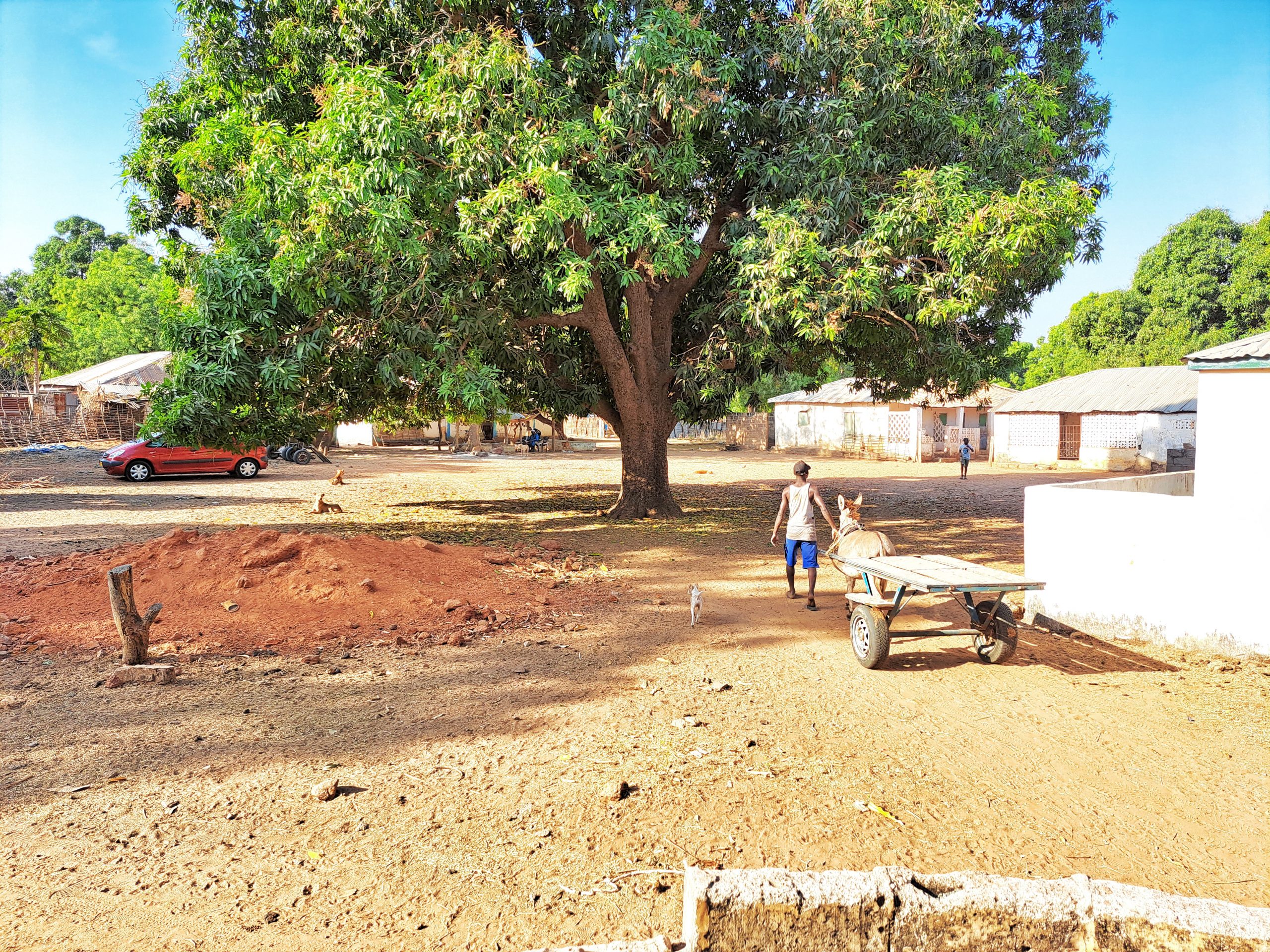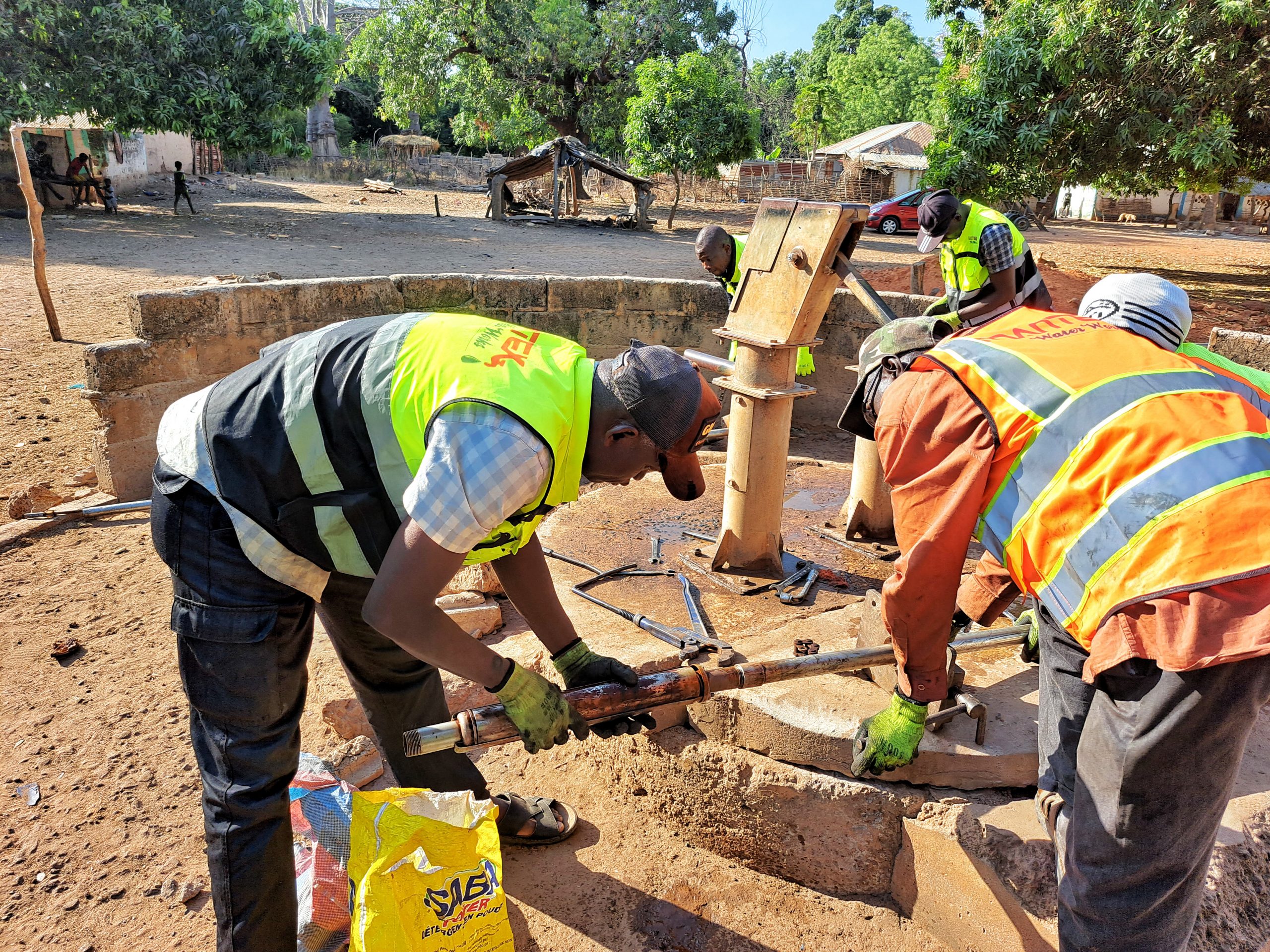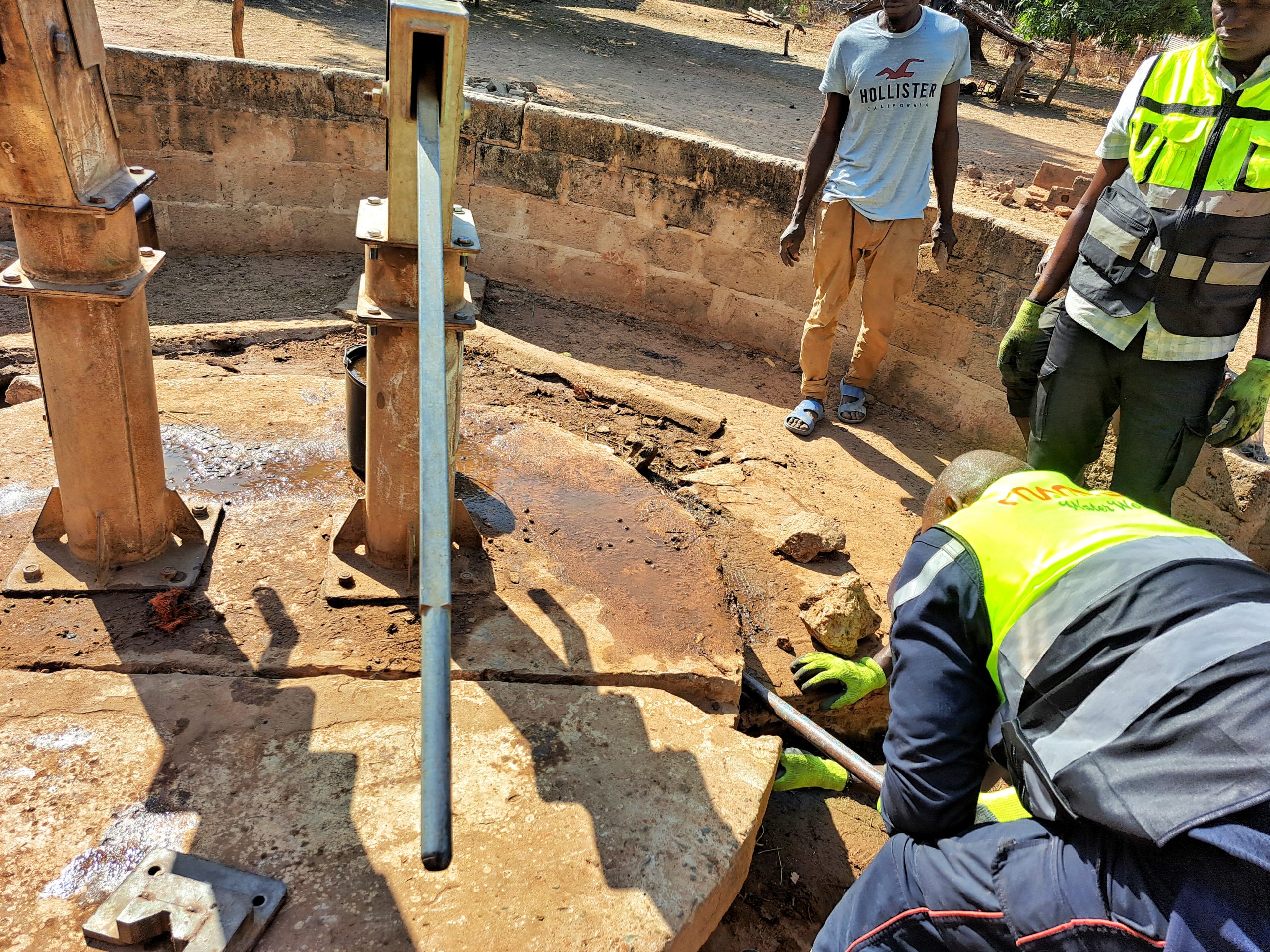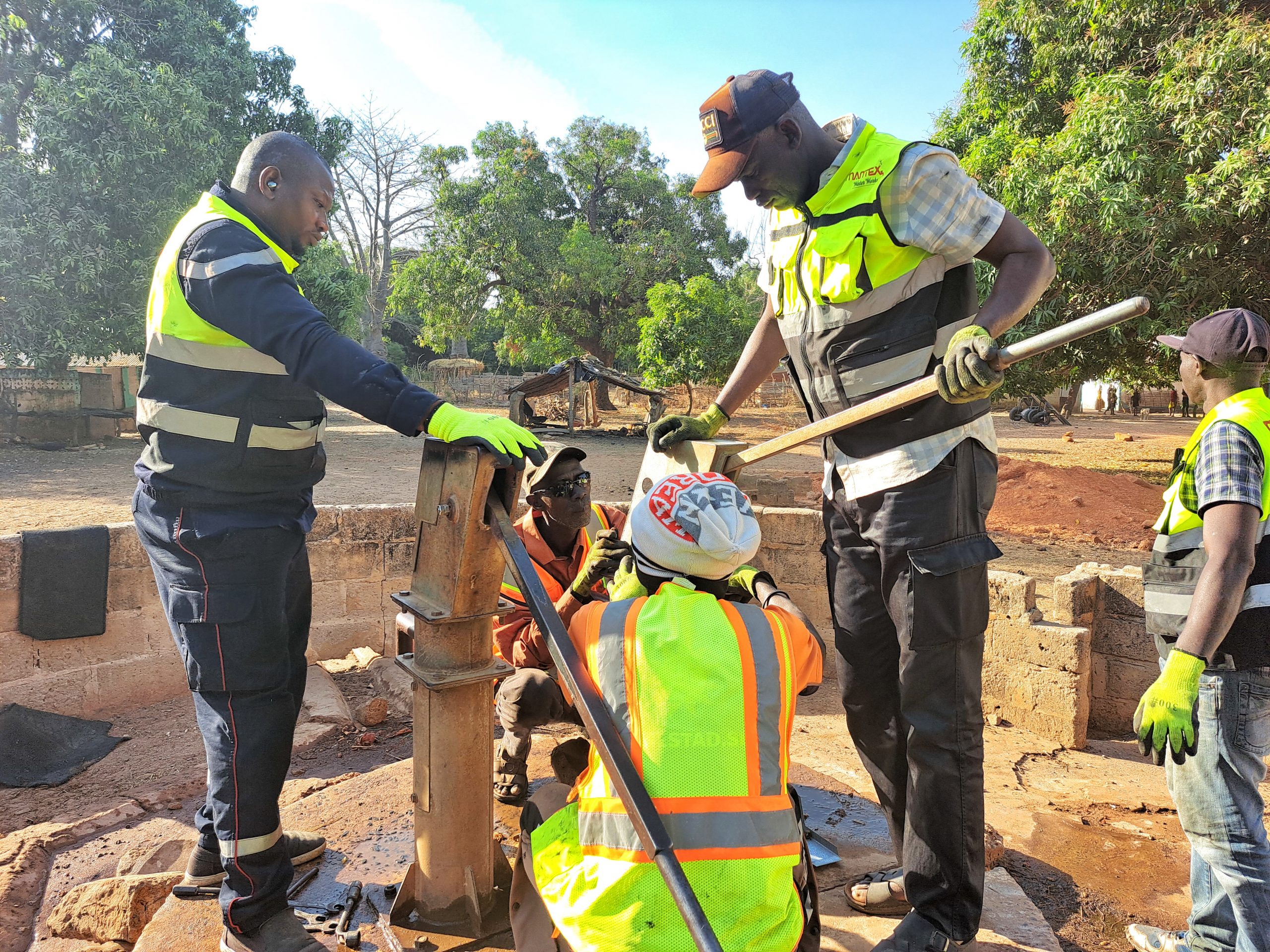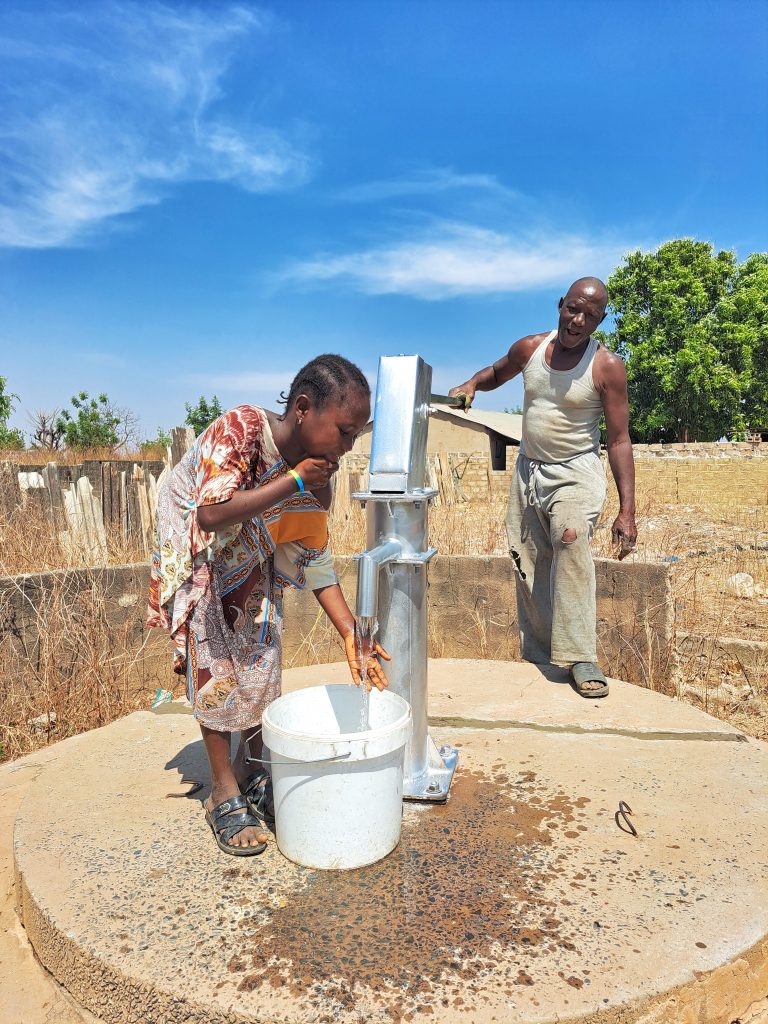
Sabach Sanjal is one of the seven districts of the North Bank Region of The Gambia. Its main town is Farafenni. The North Bank Region is now the Kerewan Local Government Area, and the former Upper Baddibu District is now divided into an Illiasa District and a Sabach Sanjal District. The district is home to Pakala Forest Park, a protected area in The Gambia covering 1,161 ha (2,870 acres). By and large, residents of Sabach Sanjal practice subsistence farming. Their main occupations are farming, including crop cultivation, cattle rearing, and fishing. In our recent GIS Mapping assessment, we found that most communities in Sabach Sanjal district lack access to potable drinking water and some communities are still practicing open defecation. Sabach Sanjal’s border with Senegal on the north is porous thus paving the way for cattle rustling and other crimes inflicted on poor farmers. This coinciding with the lack of water makes the district hard to live and unbearable for communities. This has prompted many young men and women from the district into rural-urban migration and also engaging in the deadly voyage through the Sahara Desert to the Mediterranean in search for a better life, where they are often abused.
To see project-related videos, Click Here.
The first phase of this project has been successfully completed thanks to Water Charity and its local partner Working Water The Gambia (WWG). This is part of a series of projects launched under the Water for Everyone Initiative. The project mission was to improve water access and sanitation conditions across 5 villages in Sabach Sanjal District by rehabilitating handpumps, installing new ones where necessary, and providing hand washing stations to improve sanitation and hygiene in the communities of Daffa Village, Jambaya Village, Kungo Village, Kunjata Village, Tambakoto Village. Thanks to the collaborative support of the villagers in all these villages, the project was completed successfully. This project provides access to clean water and sanitation to over 4,000 people.
Daffa Village
ACTIVITIES
The project saw the successful dewatering, re-digging of wells, installation of new German Mark 2 cylinders and conversion heads, stainless steel pipes, rod couplings, check nuts, pedestals, axles and bearings. Concrete water troughs were built, new culverts for wells and concrete slabs. Handwashing stations were installed in all project intervention communities supplied with detergents. In partnership with The Gambia’s Department of Water Resources, quality testing and treatment was also conducted at the end of each community project. In each community, learning sessions were held on effective handwashing techniques and simple water management strategies. Communities also participated in manual works like digging, and collecting sand and gravel. They also hosted workers, which assured that all materials were secured.
Jambaya Village
OBJECTIVES OF THE PROJECT
The primary objective of this project is to provide clean drinking water and better sanitation for the people of the selected 5 villages in the Sabach Sanjal District as for the first phase of the project. This has been successfully achieved at the completion of the project.
- Sabach Sanjal region has long suffered from the lack of clean drinking water. The region has been hit hard with overgrazing and poor farming techniques that made a lot of farmlands inarable as well as frequent bushfires. One of the objectives of the project is to ease the pressure of the lack of clean drinking water in communities, as well as provide sanitation.
- Another important objective of this project is to inculcate the habit of hand washing in communities. At each of the rehabilitated water sources in each community, a hand washing station is provided with detergents and also a learning session on the techniques of effective hand washing. Members of the community gather in the village square for the learning sessions. This is a tool to combat the spread of germs and other communicable diseases that could spread within communities especially after using the toilets. It also aids nursing mothers as well as children to understand the importance of hygiene and sanitation. Participation in the learning sessions was high. Community engagement was immense and enthusiastic.
- One of the objectives of this project is to provide clean drinking water for marginalized vulnerable communities like the Fana Fana tribesmen and some of the Fulani herdsmen within the district.
- The project also empowers women and girls. We all know the burden women and girls bear in water collection. Sabach Sanjal is another district that is far behind in terms of education and literacy rate, especially within the Fana Fana tribe. They are well known for engaging in early marriage. This clean water project will empower girls’ participation in school and discourage families from the early marriage of girls. The time spent on water collection is far shorter now for school-going girls. This is a boost for girls’ participation in the school curriculum, especially in the villages of Daffa and Kungo.
- Another objective of these projects is to encourage women’s engagement in household-level horticulture gardening. Every rehabilitated water source includes a concrete watering trough. The water trough traps wastewater from the hand pump and can be used by nearby houses for small-scale household horticulture vegetable gardening. This avoids the wastage of water and allows households to grow vegetables and enables their livestock to drink. This helps provide the households with a balanced diet and thereby alleviates the extreme poverty communities face, especially in the dry season.
- The key objective of this project is to cut down the high rate of water-related illnesses in the recipient communities. Children often face the brunt when it comes to waterborne diseases. Certain households are drained of all resources when a family is struck with waterborne diseases. These water projects will lessen the burden on communities and money that would otherwise be spent on doctors or medicine can be used for food or for girls’ education instead.
- Another key objective of this project is to ensure ample clean drinking water for communities in order to discourage young men and women from leaving their communities, taking the deadly voyage through the Sahara Desert towards the Mediterranean, where they are often abused and some lost their lives on these perilous journeys. The project will also remedy the massive rural-urban drift which is primarily caused by the lack of water in communities.
- Setting up and training village water management committees was another objective of the project. We set up and trained water management committees in all the project communities. They help in the day-to-day management and maintenance of the water source. This will help make the project sustainable. As a best practice, we ensure the committee is gender-balanced and that women have a say in the maintenance and management of the water source. Since Sabach Sanjal District is also another district dominated by the Wollof Fana Fana tribe, we engaged traditional Wollof women communicators known as ‘’Guewel’’. They disseminate information through the local grassroots level in their mother tongue, which made our work much easier. This is a powerful tool for us to achieve our aims and the successful conclusion of this project. They are also involved in the sensitization of communities for better water management.
Kungo Village
BENEFICIARY TESTIMONIAL
The excitement and happiness are overwhelming in all the communities. Heads of villages and cultural leaders of the respective 5 villages all expressed their sincere thanks for the project and happiness, highlighting the positive impact that these clean water projects have in their lives.
Ebou Gaye the local councilor of the district, expressed his praises on and thanks to Water Charity. He also mentioned the social and economic importance of the water projects, as well as the tremendous importance of clean drinking water for the communities, especially in relation to the provision of education and the increased well-being. He also mentioned the importance and timeliness of the project. Some communities were severely threatened with abandonment due to the lack of water. He further encouraged the community to take very good care of the rehabilitated water sources. Similar remarks were made by Hincha Gaye, a student of grade 6. My mother used to wake me up at 4AM in order to go to nearby villages searching for water in that early morning darkness. Most of the times we heard the sounds of wild animals like hyenas and foxes which is very scary. I carry that trauma with me to school she said. Now I can study very well in school because we now have clean drinking water in our village thanks to Water Charity.
Oumie Lowe, head of the cultural women group called the “guelwel Samba Naar’’ also gave thanks for the water projects, saying this will make their families healthier and their living conditions better. It will also help us to send girls to school she said. Other community leaders of the beneficiary villages expressed their thanks and gratitude for the clean water projects. They emphasized the importance of these water projects, saying it will promote greater understanding and goodwill among the various tribes within the community. I haven’t washed my clothes and my children’s clothes for the past few days due to lack of water said Amie Samba a mother of 4. It has been so tough for us, but now we can keep our heads high thanks to Water Charity. This project has given us life and we are forever grateful she said.
Ousman Gaye a representative of the family of the late traditional chief, Mr. Sait Gaye, along with other cultural leaders all emphasized the importance of this project, saying the power of clean drinking water unifies villages and helps fight poverty which their district is severely facing. This project will solidify brotherliness and more understanding among ourselves, they said. They also urged village water committee members to wholeheartedly strive to take good care of the water sources.
Thanks to the donors for making this project a success.
Kunjata Village
Tambakoto Village

This project has been completed. To see the beginning of the project, CLICK HERE.

